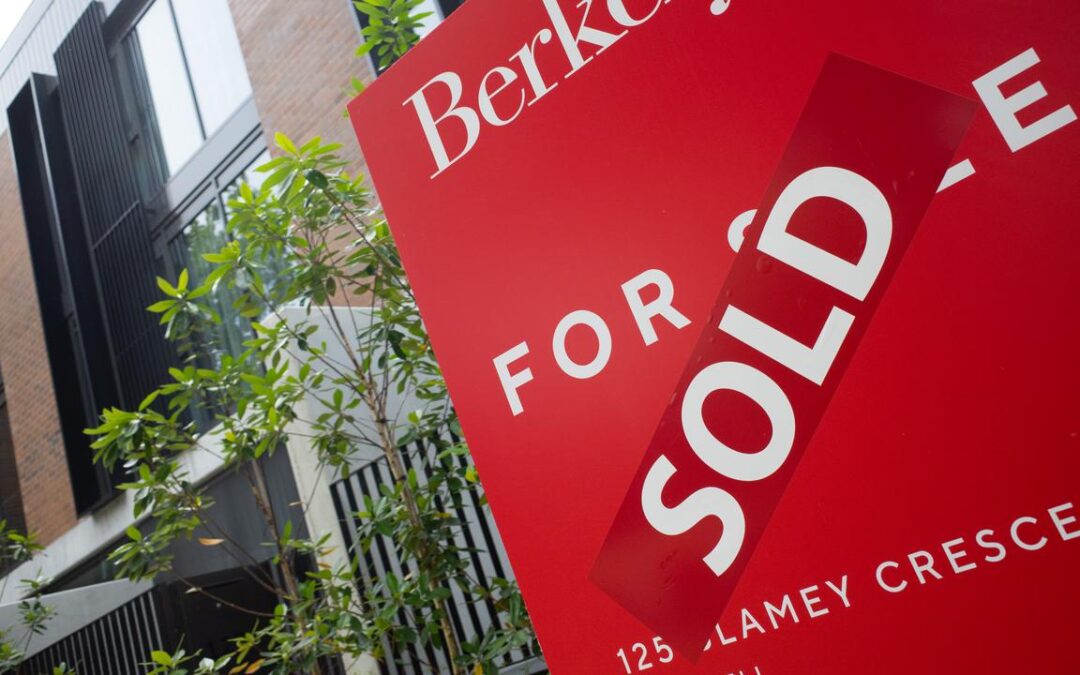
Home prices turbocharged as deposit guarantee kicks in
Property prices have recorded the sharpest growth in more than two years after the government’s deposit guarantee scheme ignited demand for entry-level homes.
The first-home buyer scheme, which was expanded at the start of October, appears to have turbocharged the growth in house prices that had already been occurring since the Reserve Bank started cutting interest rates in February.
In October, home prices grew by 1.1 per cent nationally – the fastest monthly growth rate since June 2023 – according to property analytics firm Cotality’s latest home value index, published on Monday.
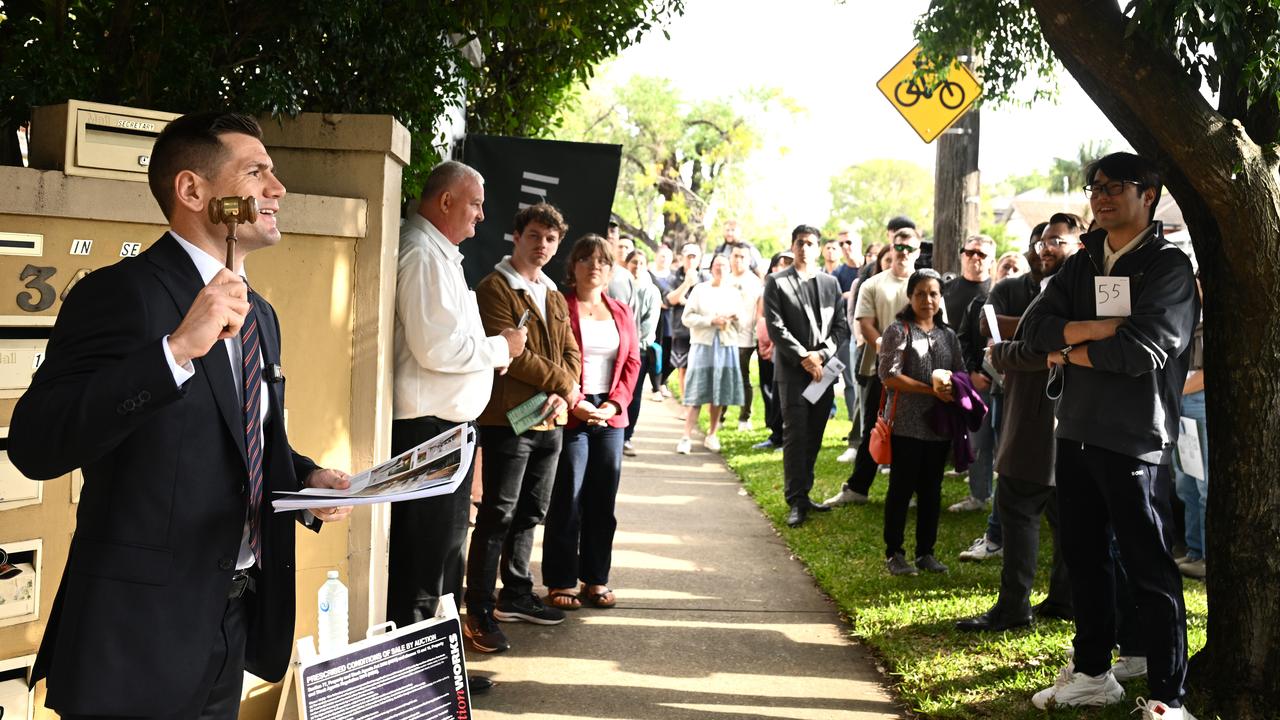
While there was still a lack of data about uptake levels for the deposit guarantee scheme, Cotality research director Tim Lawless said it was likely the scheme was amplifying demand.
“It’s a pretty clear acceleration that we’ve been seeing since February, since the start of the rate cuts. But it’s fair to say, October does seem to be a bit of a stronger step upwards,” he told AAP.
“You’d have to think, without having any numbers from Housing Australia or anything like that, this is going to be adding some further demand to the marketplace at a time when supply levels are already quite scarce.”
Anecdotally, the middle to lower end of the market, where suburbs or properties are under price caps for the scheme, had experienced the strongest growth, Mr Lawless said.
The upper quartile of the market was exhibiting the slowest growth across almost every capital city.
The rush of buyers looking to take advantage of the five per cent deposit scheme has left just 47 per cent of suburbs nationwide with median house values below the eligibility threshold in October, down from 51 per cent two months prior.
“It’s going to be a program that’s probably first in, best dressed,” Mr Lawless said.
“The more desirable suburbs, where you still can find a home under the price caps, are going to become scarcer and scarcer.”
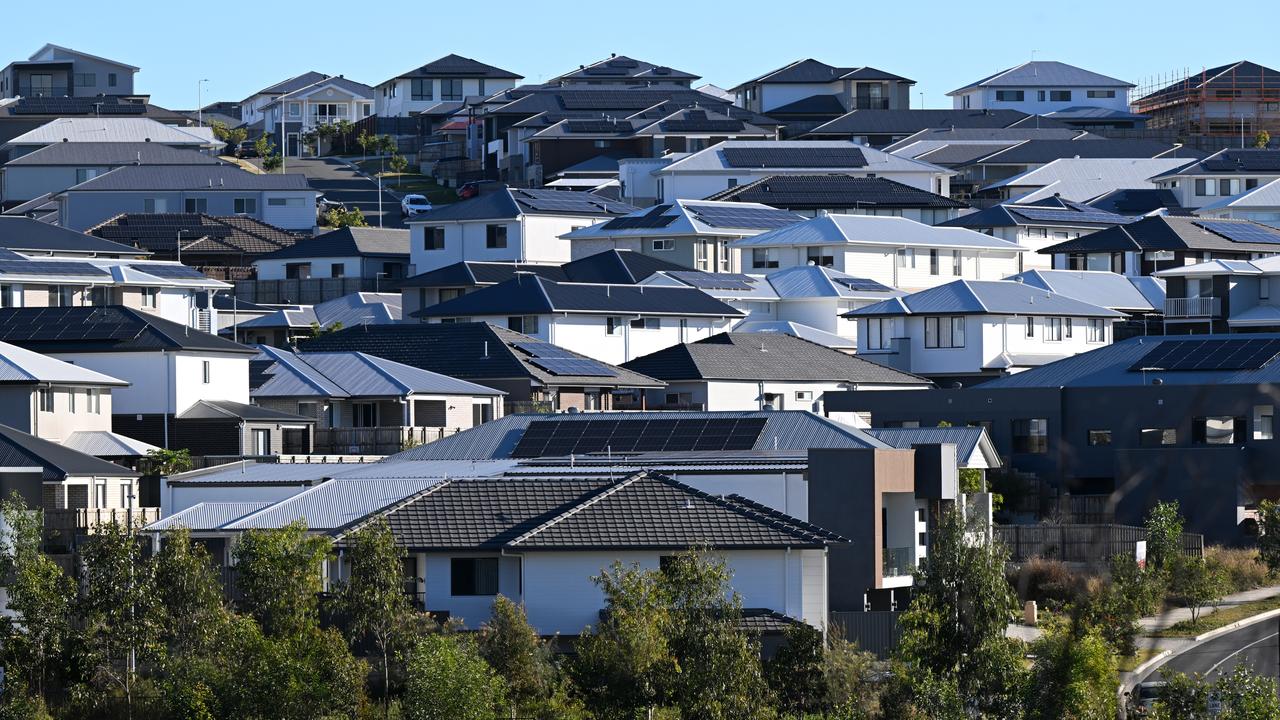
Perth was the fastest growing capital city, up 1.9 per cent over the month, while Brisbane rose 1.8 per cent and Adelaide 1.4 per cent. Sydney and Melbourne grew 0.7 and 0.9 per cent respectively.
While increased demand was pushing up prices, an underlying lack of supply was still the overwhelming driver of price growth, Mr Lawless said, with listings tracking about 18 per cent below average.
“I wouldn’t say demand is shooting the lights out. It’s really a supply-driven upswing that doesn’t look like is going to be changing any time soon,” he said.
Recent planning and zoning reforms by state governments were unlikely to move the dial because builders were still facing severe profitability constraints, Mr Lawless said.
“If the government’s serious about getting more supply into the market, they might need to start providing some sort of incentive to the industry, or alleviation in development contributions or builder taxes that might fast-track some of the supply that isn’t relying on approvals.”
Mr Lawless noted that while the underlying supply shortfall would continue to push up values, falling rate cut expectations, affordability constraints and dampened consumer sentiment might cause price growth to peak earlier than previously anticipated.
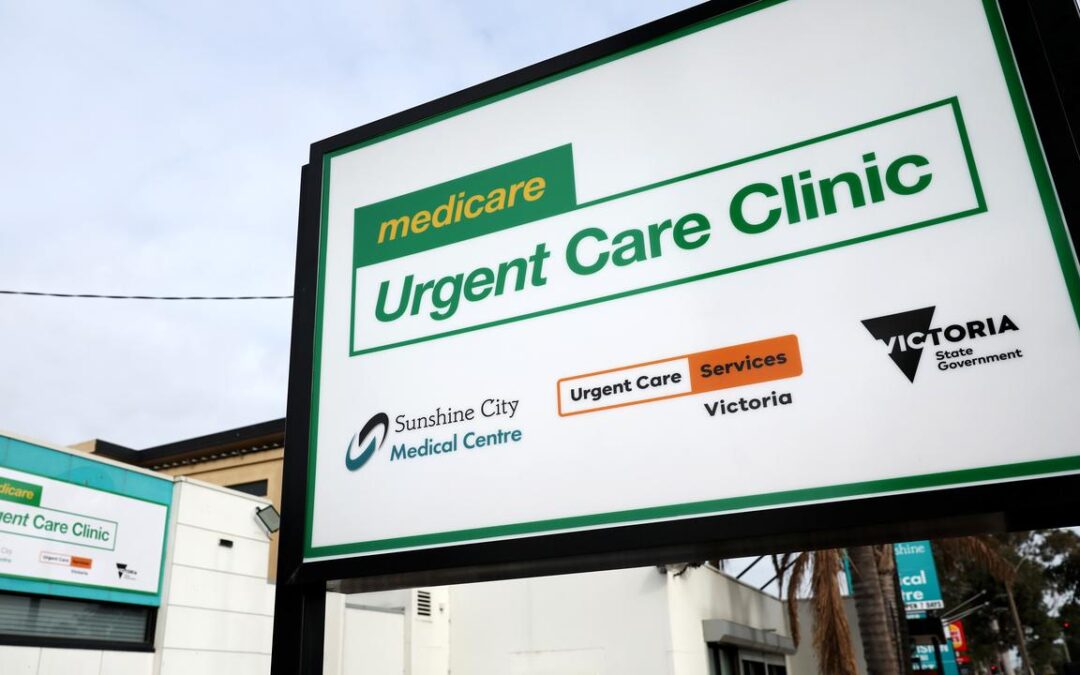
Labor spruiks Medicare spending as parliament resumes
The government will talk up its healthcare credentials by arguing billions of dollars in Medicare incentives are already yielding results as parliament resumes for another sitting week.
On Saturday major subsidies took effect, aimed at making nine in every 10 doctors appointments bulk billed by 2030.
The $8.5 billion policy was a key plank of Labor’s re-election pitch earlier this year, but some doctors have said they won’t take up the new incentives because it still won’t be cost-effective to offer free appointments.
Under the plan, payments which previously incentivised GPs to bulk bill children and concession card holders have been expanded to all Australians.
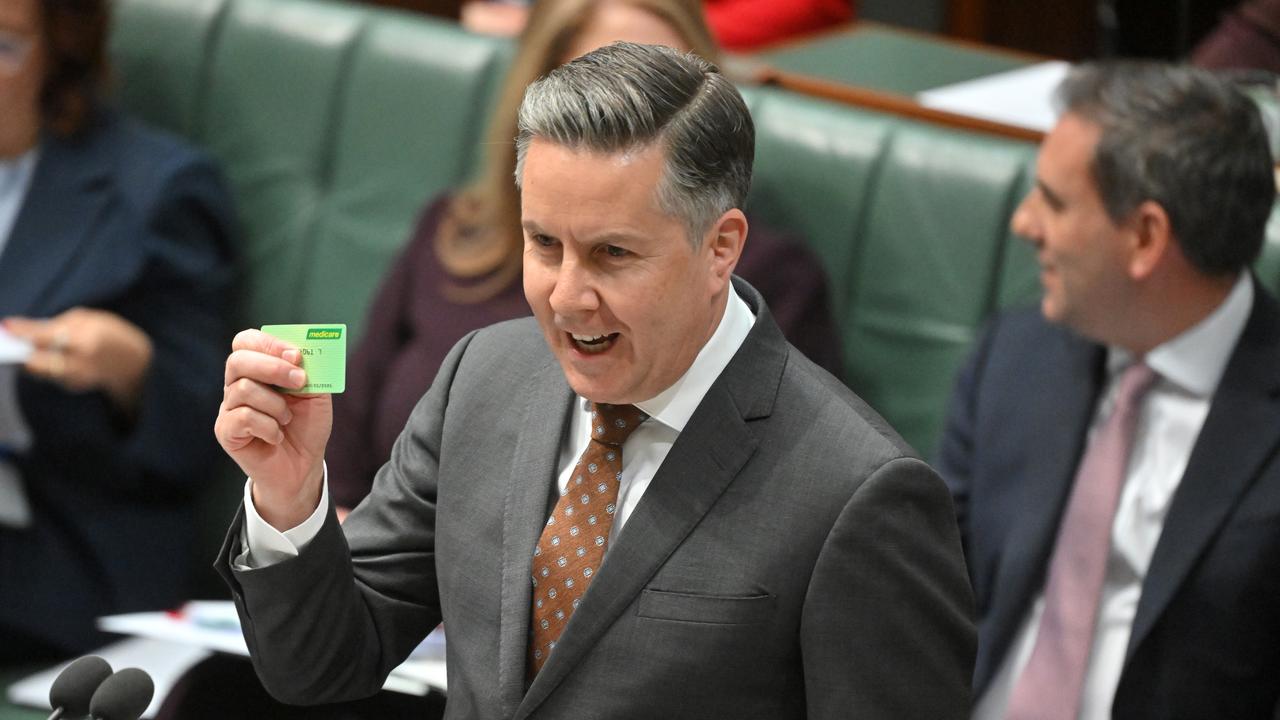
A new reward payment has also been set up for clinics where every doctor bulk bills every patient for normal appointments.
Over the weekend Health Minister Mark Butler released new data showing more than 1000 practices had expressed interest in becoming fully bulk-billing.
More figures released on Monday show that although the majority of clinics planning to offer free appointments to all patients are in cities, regional and rural areas will benefit as well.
Of the practices looking to expand bulk billing, 622 were in metropolitan areas, 108 were in regional centres, 73 were in large rural towns, and 248 were in smaller towns or tiny remote communities.
The electorates of Ballarat in Victoria, and Rankin and Hinkler in Queensland, are expected to see the largest increase in the number of bulk billing GP clinics.
Prime Minister Anthony Albanese will be back in parliament spruiking the changes, after attending a series of key global summits in Malaysia and South Korea last week.
The Opposition’s internal dramas over climate and energy policy will also be in full view over coming days, after the Nationals voted to abandon their policy of net zero emissions by 2050, setting up a fight with the Liberals who are yet to finalise their approach to the issue.
Liberal MPs insist they aren’t beholden to their regional colleagues on the issue, and Nationals Leader David Littleproud has said he will respect his coalition partner’s internal processes.
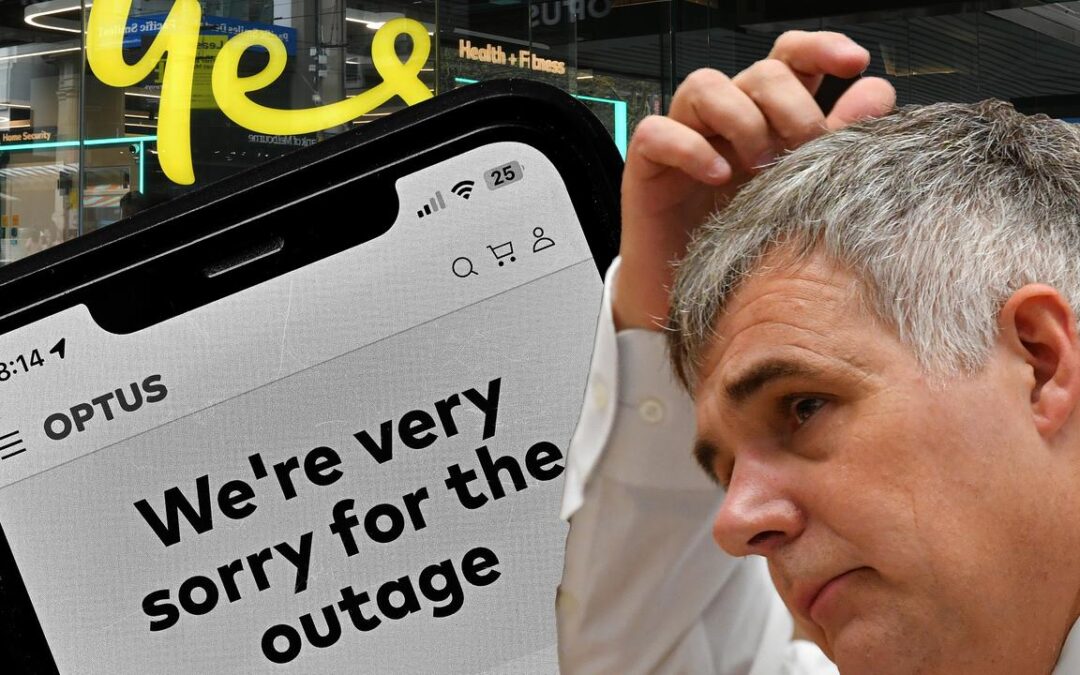
Optus execs to face grilling over triple-zero outage
Top Optus executives and senior government officials will face the music at a parliamentary inquiry into their response to a triple-zero outage linked to the deaths of three people.
A Senate probe into the debacle was given the green light last week and will hold its first hearing on Monday.
Optus chief executive Stephen Rue is among those expected to face a barrage of questions, along with the telco’s chairman John Arthur, former chairman Paul O’Sullivan and chief financial officer Michael Venter.
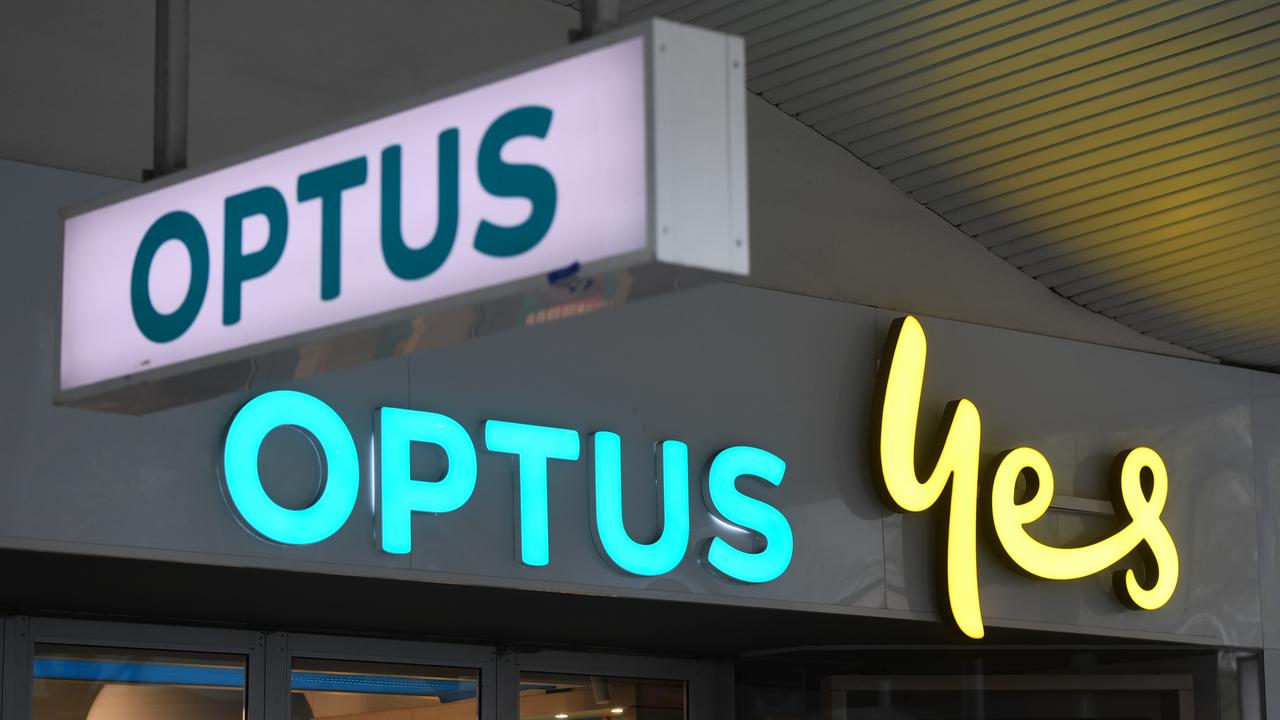
Officials from the communications watchdog, the Australian Communications and Media Authority, will also find themselves in the hot seat.
Senators are hoping to better understand what caused the September outage, which stopped hundreds of Australians from making triple-zero calls.
The inquiry will also examine the effectiveness of emergency arrangements designed to shift customers to another network if their telco has an outage.
Liberal backbencher Sarah Henderson, who is on the Senate committee, said she was determined to uncover exactly what went wrong.
“The coalition will put the fire to the feet of Optus, the government, the regulator and the hapless minister for communications,” she said in a statement.
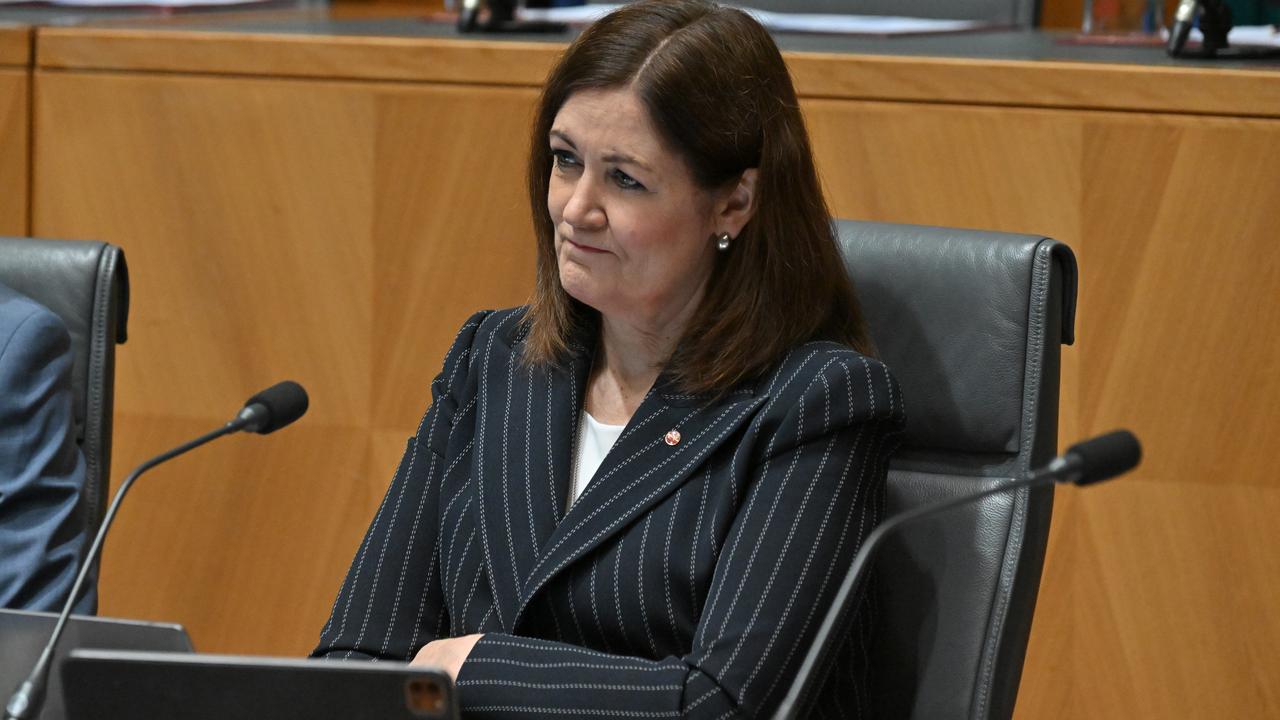
Senator Henderson, a former opposition communications spokeswoman, has been calling for Communications Minister Anika Wells to front the inquiry to explain apparent discrepancies regarding when her office was told of the outage.
“We will leave no stone unturned to uncover the truth and hold those responsible to account for what went wrong,” Senator Henderson said.
The communications watchdog and Optus are both running investigations into the outage.
New rules that took effect on Saturday require telcos to report outages to the communications watchdog and emergency services in real time.
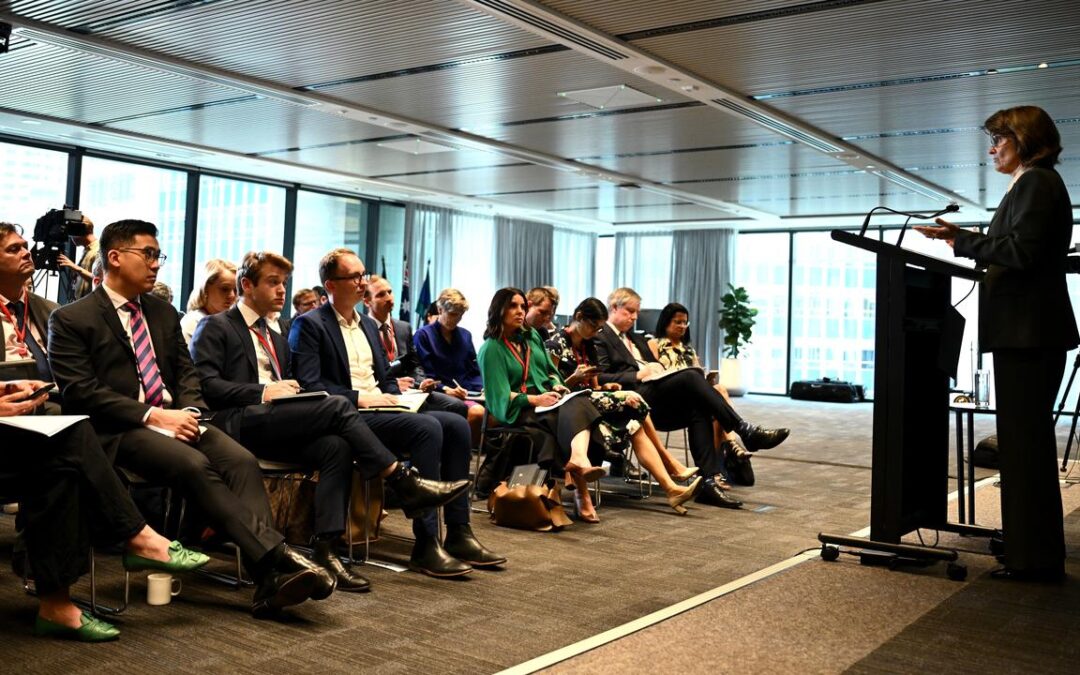
RBA to reveal interest rate call, economic forecasts
Mortgage holders are unlikely to get a helping hand this week, with resurgent inflation expected to discourage the Reserve Bank lowering interest rates for the foreseeable future.
Conflicting impulses of rising consumer prices and higher unemployment are pulling the RBA monetary policy board in opposing directions, ensuring the bank will opt to sit on its hands and wait for more data, according to analysts at Japanese investment giant Nomura.
Since the last rates meeting in September, the key developments have been a sharp jump in unemployment in September and a much stronger-than-expected inflation print last week, Andrew Ticehurst and David Seif said.
“The RBA has a dual mandate and with these data pulling it in different directions from a policy perspective, the best option is likely the ‘do nothing’ option,” they said in a research note.
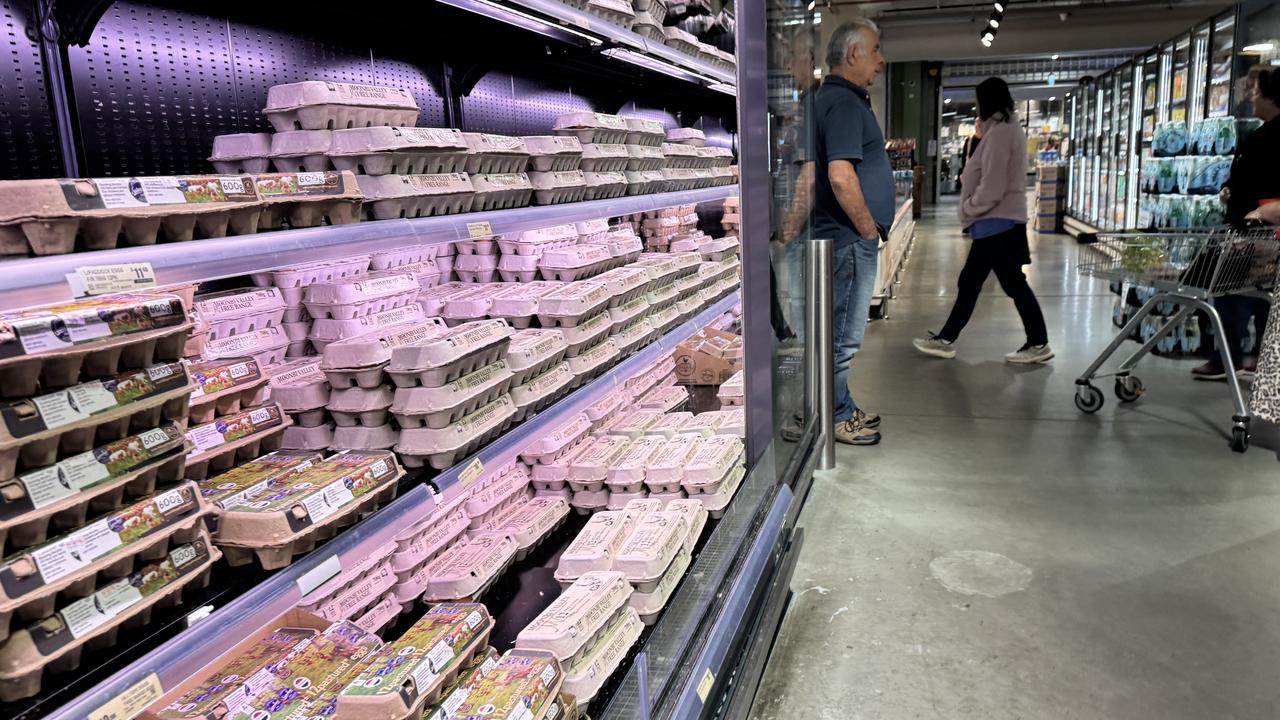
Determining rate decisions based on past data was akin to “driving by looking out of the rear-view mirror” and raised the risk of policy error.
“But equally, we are not sure there is a better approach,” Mr Ticehurst and Mr Seif said.
“And with the economy now growing at a near-trend pace, the policy rate now likely close to the nebulous neutral rate and policy shifts likely only occurring in small increments, the cost of any consequent error should hopefully not be large.”
The consensus is for the Reserve Bank to keep rates on hold on Tuesday.
Expectations for future moves will be influenced by the tone of the board’s statement, governor Michele Bullock’s post-meeting conference and updated economic forecasts which are released concurrently.
NAB senior economist Taylor Nugent expects the board to emphasise the need to remain on hold for a while longer to gain greater confidence about the path forward for inflation.
“We expect caution to leave the RBA on an extended pause and little guidance about the path ahead as they gather more information about labour market and inflation dynamics,” he said.
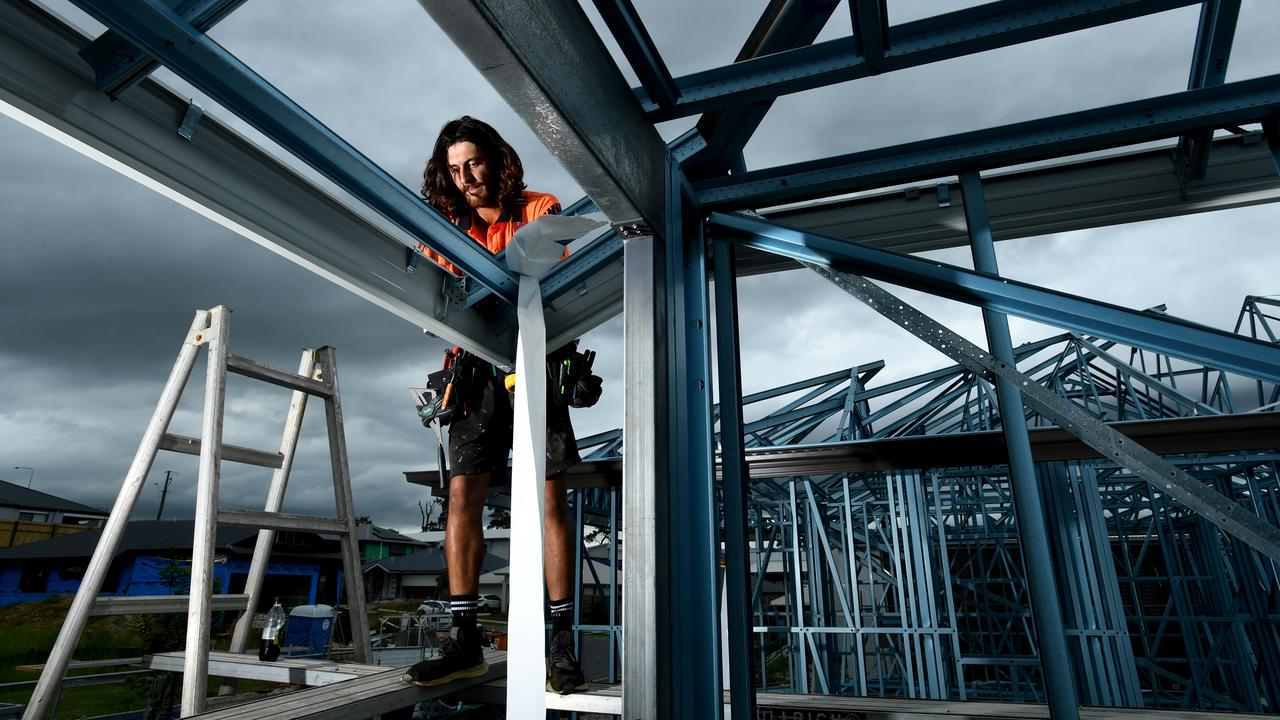
While Commonwealth Bank now thinks the central bank has ended its easing cycle, Westpac still expects two more reductions next year, although later than previously predicted.
“Monetary policy is still somewhat restrictive,” said Westpac chief economist Luci Ellis, a former chief economist at the RBA.
“Further cuts to the cash rate next year are therefore warranted given underlying inflation will remain within the band and be heading down in coming quarters.”
The Australian Bureau of Statistics will also this week release data on consumer spending, building approvals and trade.
After growth decelerated in the previous two months, ANZ economists expect household spending to have picked up in September, with Monday’s figures predicted to show 0.4 per cent growth.
The ABS is also expected on Monday to report building approvals rose four per cent over the month, says ANZ’s Madeline Dunk.
“Private dwellings ex houses (units/townhouses) has declined 32 per cent over the past two months, so we expect to see there was a rebound in September.”
Elsewhere, Cotality’s Monday home value index should show further growth in nationwide property values.
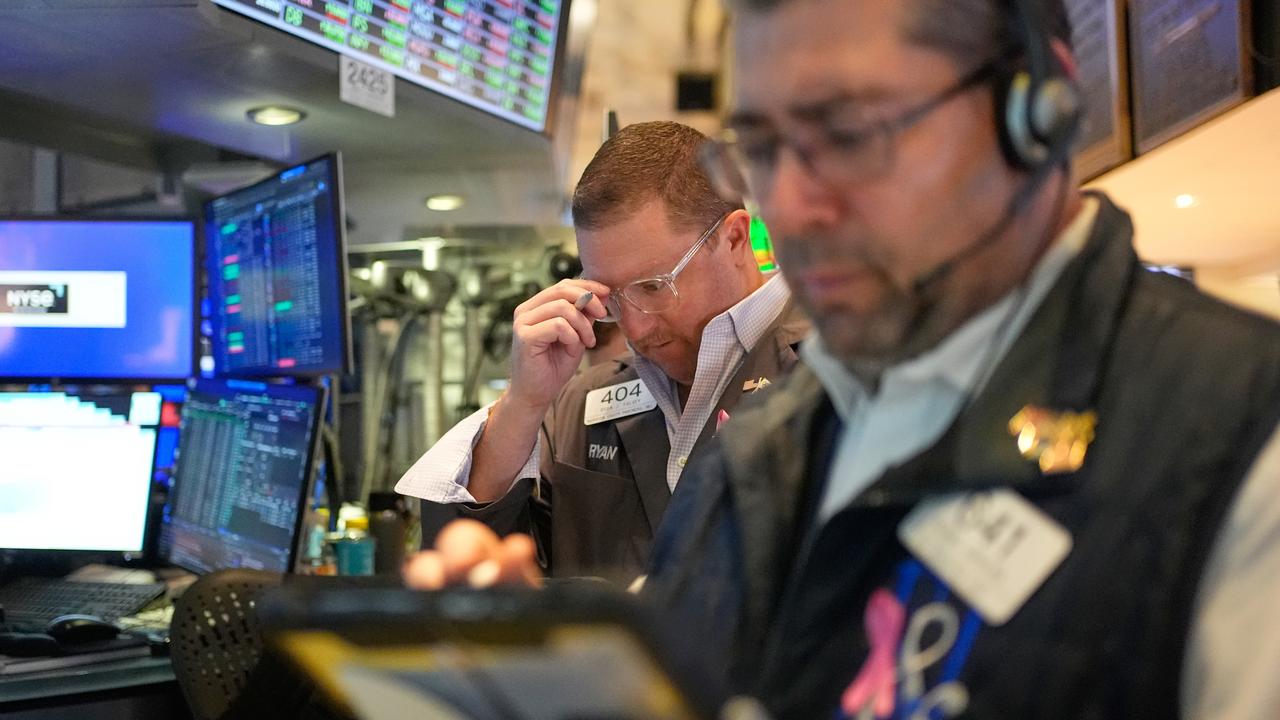
Wall Street investors meanwhile seem worried the Federal Reserve is also becoming more cautious about cutting US rates.
The main New York indices closed higher on Friday, thanks largely to Amazon’s upbeat earnings forecast, but sentiment was dampened.
The Dow Jones Industrial Average rose 40.75 points, or 0.09 per cent, to 47,562.87, the S&P 500 gained 17.86 points, or 0.26 per cent, to 6,840.20 and the Nasdaq Composite gained 143.81 points, or 0.61 per cent, to 23,724.96.
Australian share futures were down five points, or 0.05 per cent, to 9,913.
The S&PASX200 edged 3.6 points lower on Friday, down 0.04 per cent to 8,881.9, as the broader All Ordinaries lost 0.9 points, or 0.01 per cent, to 9.178.
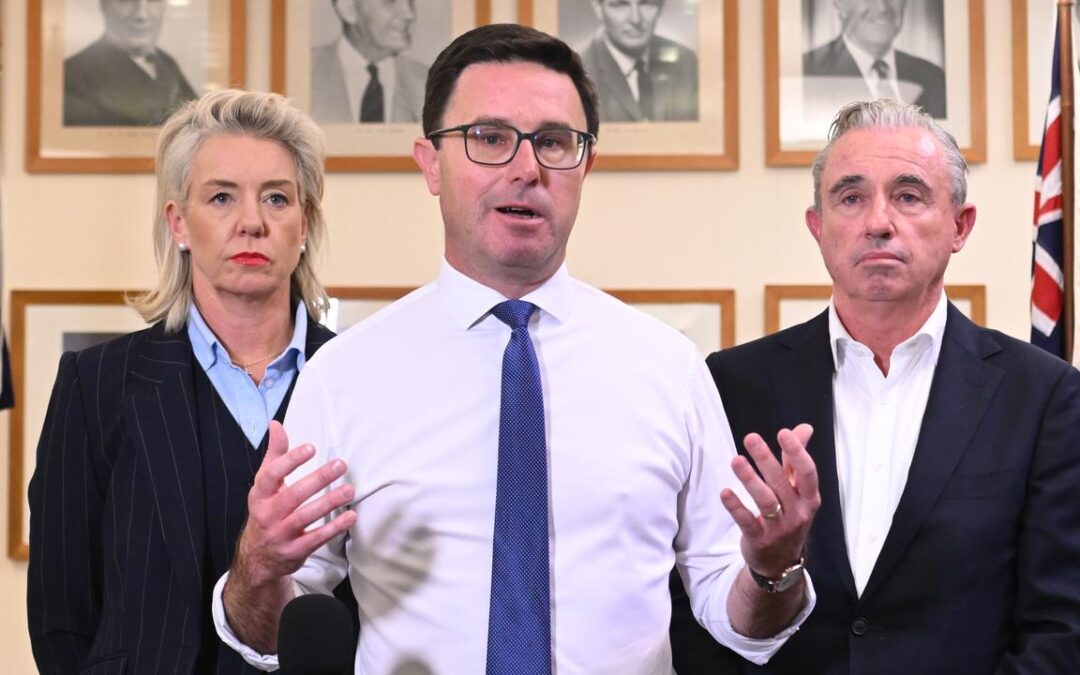
Nationals poised to make call on net zero emissions
The direction of Nationals climate and energy policy could soon be decided at a special party room meeting called to discuss the hot-button issue.
Leader David Littleproud and his colleagues will meet in Canberra amid speculation they will follow the lead of the party’s federal council, which voted on Saturday to ditch support for net-zero emissions from its platform.
The outcome of the party room meeting has not been predetermined but Mr Littleproud was sharply critical of the pursuit of net zero while “the rest of the world is pivoting”.
“We can’t mitigate for the world,” he told reporters on Saturday.
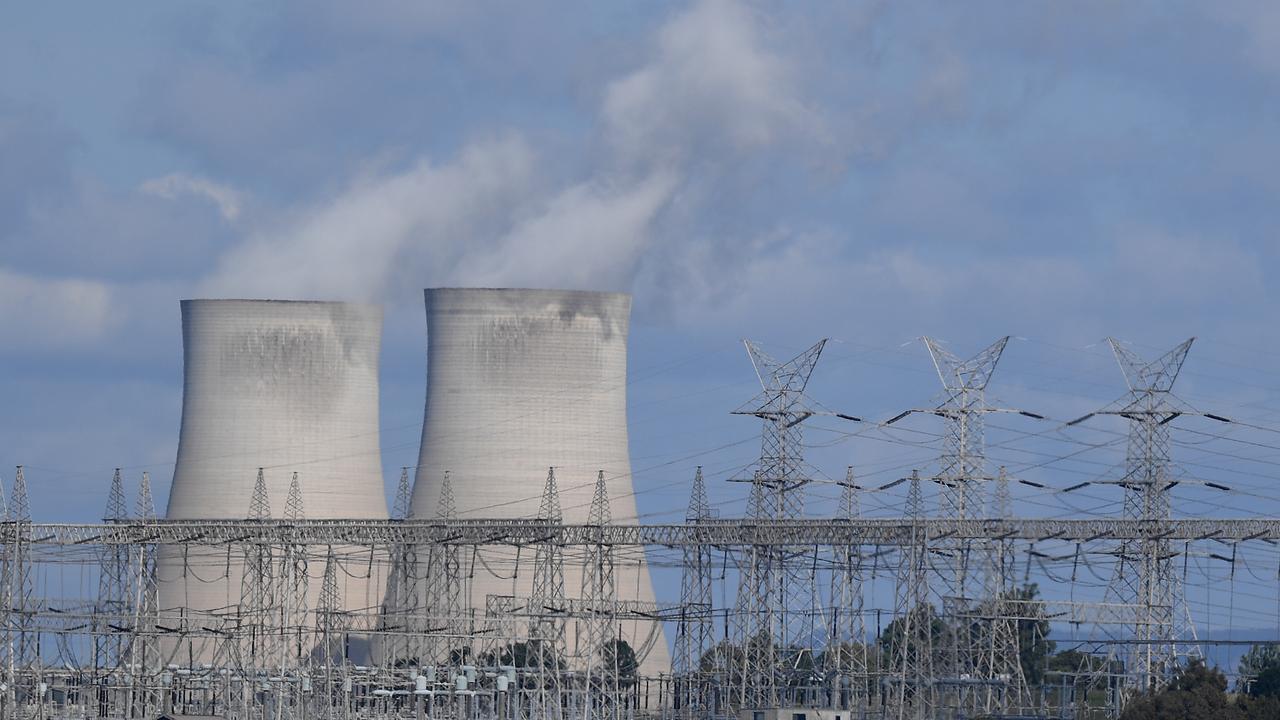
“We’ll peg ourselves to the rest of the world, not streak ahead of them, but stick with them.”
Prime Minister Anthony Albanese chose not to remark directly on the possibility of a Nationals’ climate policy that linked Australia’s emissions cuts to the performance of other countries when queried on the sidelines of the APEC summit.
“But on climate change, climate change is real,” he told reporters in South Korea.
“Climate change is having an impact.”
“I’m an advocate for action on climate change, not just by Australia but by the globe because we all need to act.”
The Nationals leader said he believed in human contribution to climate change but thinks the response should have a greater emphasis on adaptation.
“There is not just one way that we can actually address this, not just in mitigation of reducing emissions, but also adaptation,” he said.
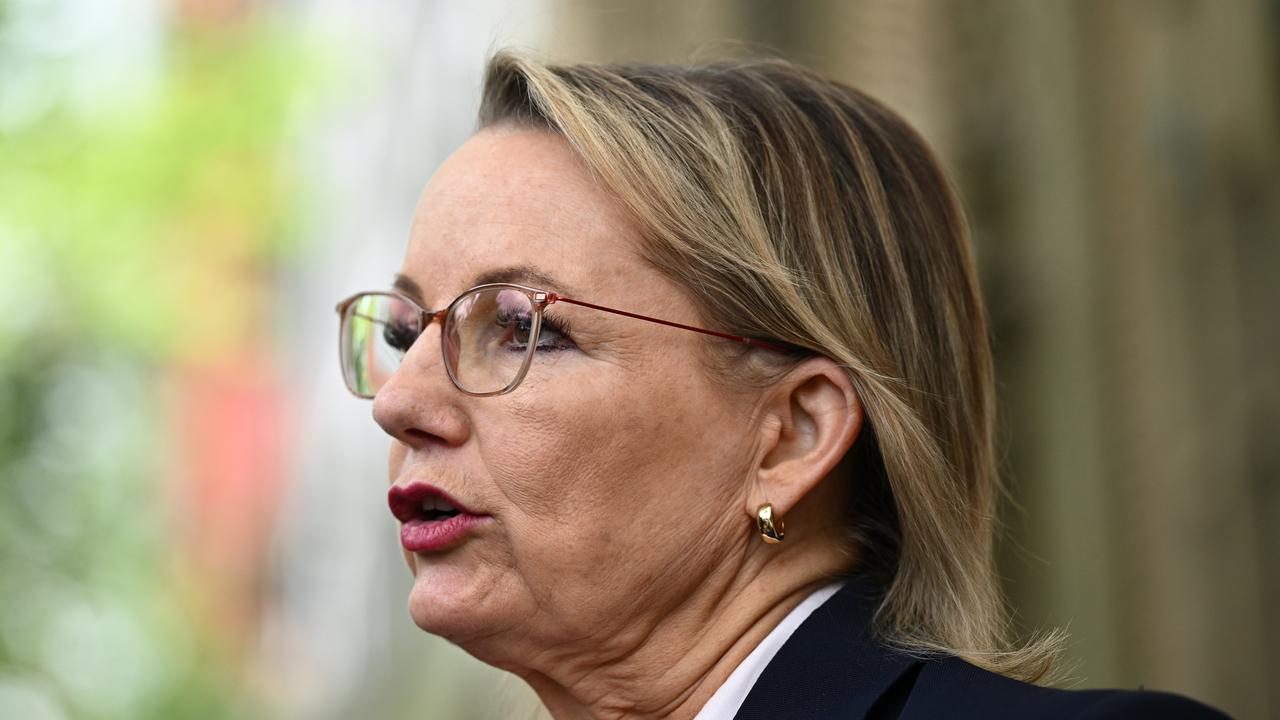
Sunday’s party room meeting will be informed by a Page Research Centre report commissioned by the Nationals.
Net-zero policy has become a sore spot within the federal coalition following its convincing May election defeat, with the Liberal Party undertaking its own energy policy review.
Liberal leader Sussan Ley has said she does not want to pursue net zero “at any cost”.
Under the Paris Agreement signed a decade ago, Australia and other member states must increase their emissions reduction targets every five years and cannot water them down.
The Labor government is committed to net zero by 2050 and is chasing an interim target of 62 per cent to 70 per cent emissions cuts by 2035.
A target of 82 per cent of electricity sourced from renewables by 2030 is key to meeting climate its goals.
Households, the economy and the environment will all be hit hard by unchecked climate change, Australia’s first National Climate Risk Assessment revealed in September.
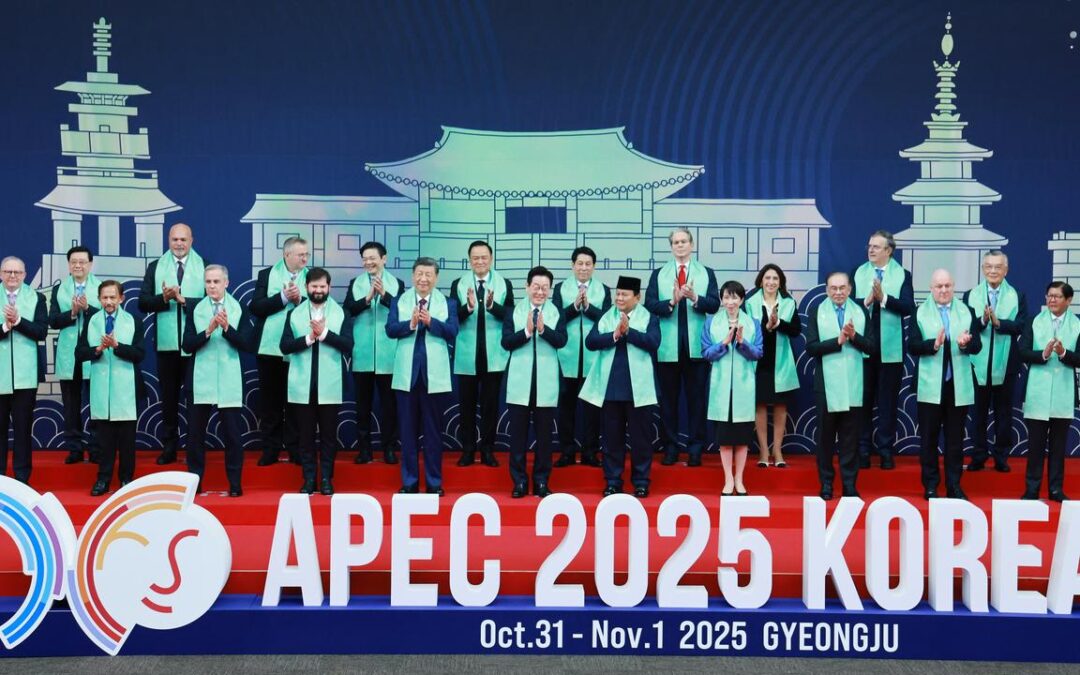
APEC wraps up after Trump-Xi agreement on trade truce
Leaders of 21 Asia-Pacific Rim nations have wrapped up their annual summit with a statement underscoring regional economic co-operation, just days after the presidents of the United States and China agreed to dial down their trade war.
After two days of the Asia-Pacific Economic Co-operation summit in the South Korean city of Gyeongju, APEC leaders issued a joint statement pledging greater co-operation to overcome shared challenges in a global economy hit hard by trade tensions between the US and China, the world’s two largest economies.
On Thursday, US President Donald Trump and China’s Xi Jinping – who met on the sidelines of the APEC summit – dialled back earlier steps and agreed to de-escalate trade tensions.
Trump, known for his dismissal of multilateralism, quickly left South Korea after the agreement with Xi, allowing the Chinese president to steal the limelight at the summit.
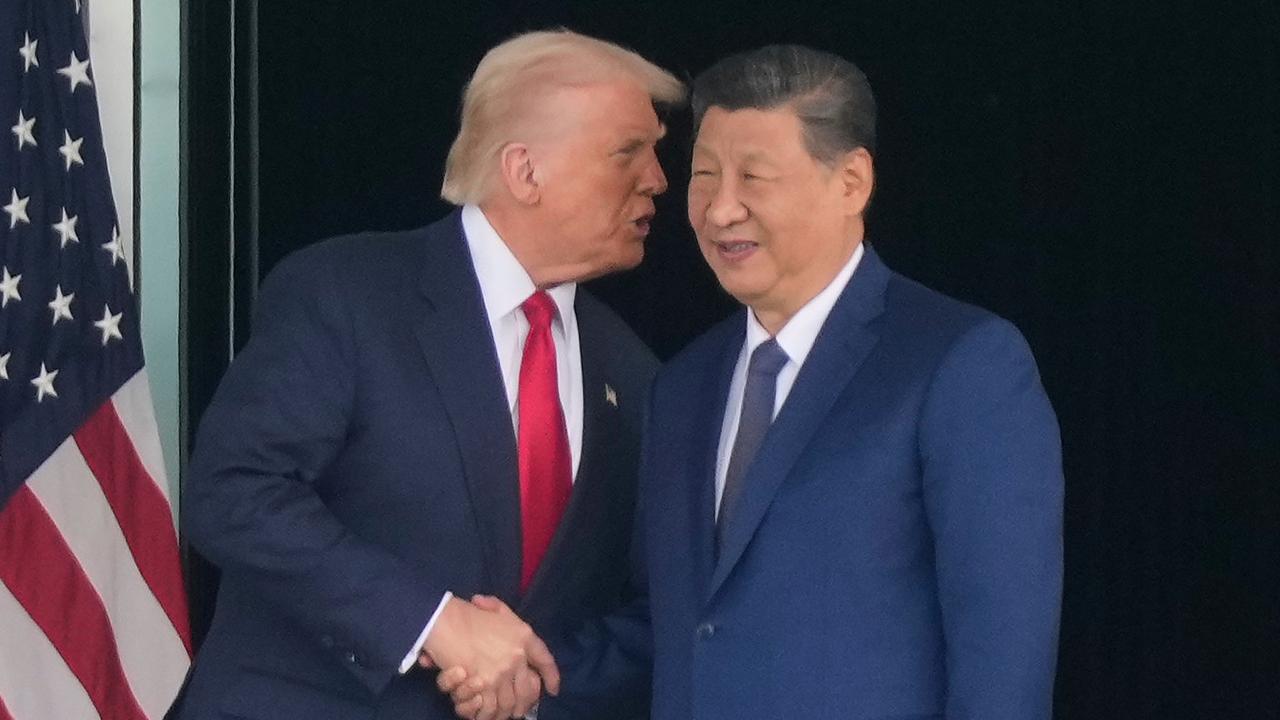
The joint statement on Saturday declared that the APEC leaders “acknowledge the global trading system continues to face significant challenge”.
“We reaffirm our shared recognition that robust trade and investment are vital to the growth and prosperity of the Asia-Pacific region,” it said.
The joint declaration also said APEC members remained committed to the Putrajaya Vision 2040, a new 20-year growth vision adopted in 2020 that calls for a trade environment that’s “free, open, fair, non-discriminatory, transparent and predictable”.
On Friday, Xi told the summit that China would support global free trade and supply chain stability – an apparent effort to position his country as an alternative to Trump’s protectionist policies.
In written remarks sent to a CEO summit held in conjunction with APEC, Xi said that “investing in China is investing in the future”.
Xi also met his Japanese, Canadian and Thai counterparts bilaterally on Friday and was to meet South Korean President Lee Jae-myung on Saturday for one-on-one talks that Seoul officials said would touch on efforts to achieve denuclearisation of the Korean Peninsula.
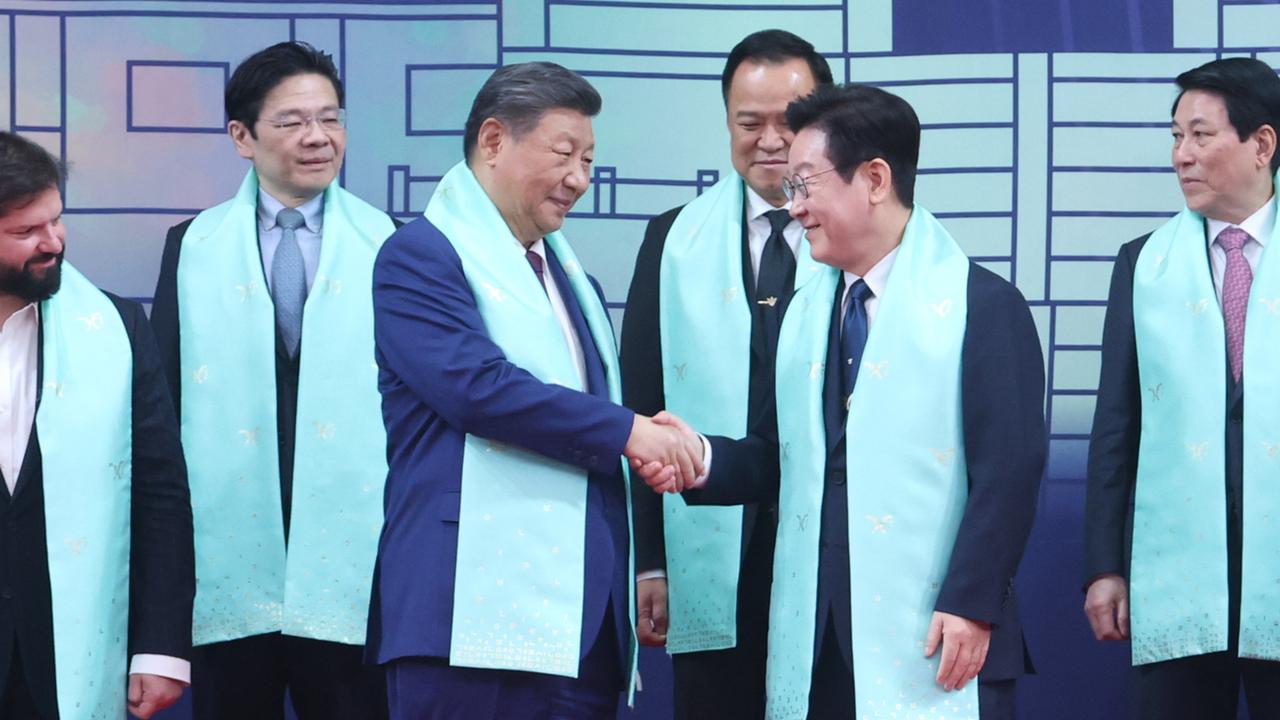
That agenda has apparently angered North Korea, a non-APEC member.
North Korea’s Vice-Foreign Minister Pak Myong-ho on Saturday slammed South Korea for talking about “its daydream” of realising North Korea’s denuclearisation.
He said North Korea would show how such a push is “a pipe dream” that could never be realised.
Lee, an advocate of reconciliation with North Korea, said he would take “more active pre-emptive steps” to lower military tensions with the North, stressing that peace on the Korean Peninsula is essential to prosperity of the Asia-Pacific region.
North Korea has since vowed not to place its advancing nuclear program on a negotiating table, but experts say the North would aim for winning extensive sanctions relief in return for a partial surrender of its advancing nuclear program.
While the summit focused on ways to boost trade and investment on Friday, Saturday’s meeting had co-operation in the field of artificial intelligence, demographic challenges and cultural industries on its agenda.
APEC leaders also issued two separate statements on Saturday.
One called for a co-ordinated approach to the changes brought on by AI, which they described as a potential economic catalyst that also poses challenges in rapidly evolving digital environments.
The other urged for co-operation to address declining birth rates, aging populations and accelerated urbanisation.
Established in 1989, APEC champions free and open trade and investment to promote regional economic integration.
But the region now faces challenges such as the US-China rivalry, supply chain disruptions, aging populations and the impact of AI on jobs.
The US strategy recently shifted to economic competition with China rather than co-operation, with Trump’s tariff hikes and “America first” agenda shaking markets and threatening decades of globalisation and multinationalism.

Deaths in custody remembered as protesters urge change
The families of those who have died in custody have braved the rain to tell their stories and cry out for change.
Donning shirts emblazoned with the faces of loved ones, they marked a National Day of Action to oppose Black Deaths in Custody at Sydney’s Town Hall on Saturday.
Kylie Aloua, whose son Jai Wright died after a collision between his trail bike and an unmarked police car, stood with protesters who held posters proclaiming “no justice, no peace” as others took the stage.
The crowd heard from Vickey Fernando, whose partner Stanley Russell was fatally shot by police in 2021, Stolen Generation descendant Gloria Duffin and others.
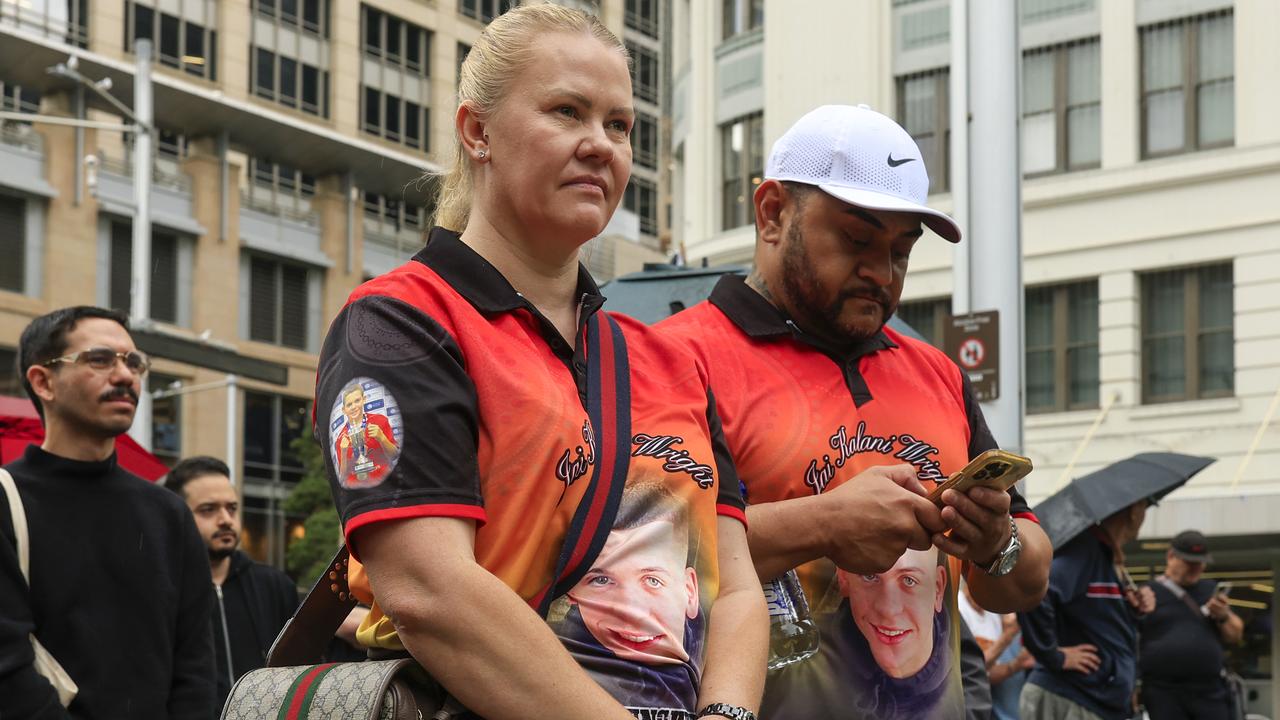
David Dungay Jr’s nephew Paul Silva has spent his life advocating for change and justice since his uncle died after being restrained by police in 2015.
His death is one of more than 600 since the 1991 Royal Commission into Aboriginal Deaths in Custody.
There have been numerous reports, recommendations handed to various governments, apologies from police forces and corrections departments in this time but lives continued to be taken by a system that repeatedly failed Aboriginal people, Mr Silva said.
“Me, my family and many other families have been calling out this system and unfortunately, it’s fallen on deaf ears and blind eyes,” the Dunghutti man told AAP.
NSW has recorded the highest number of Aboriginal deaths in custody across any state or territory in a single year, prompting Mr Silva to initiate the protest.
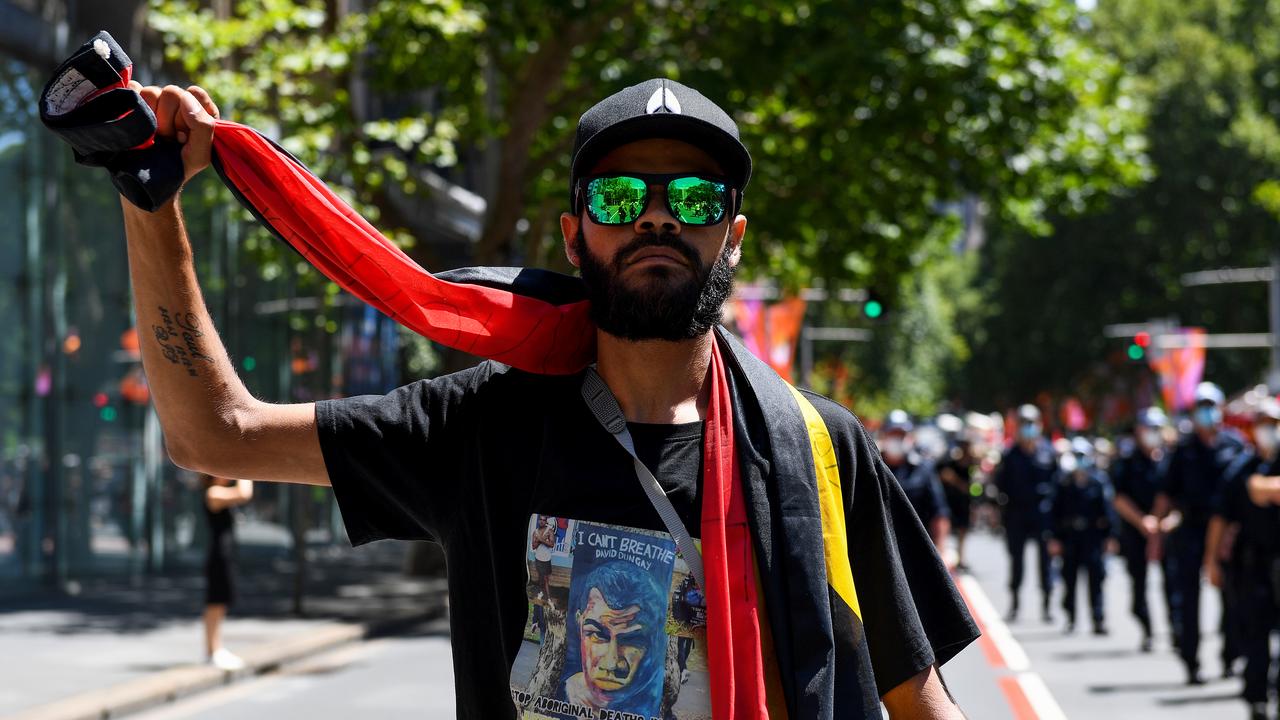
In an open letter released in October, coroner Theresa O’Sullivan said the grim milestone should deeply alarm everyone in the state.
Twelve Indigenous people had died in NSW corrective services custody since January but it was not an issue unique to the state, she said.
On Monday, 21-year-old Wiradjuri woman Chelsea Bracken died in hospital after suffering a “medical episode” while on remand at Tasmania’s Mary Hutchinson Women’s Prison.
“They’re obliterating our people,” Mr Silva said.
“Even after everything we’ve seen and said, the number of our people dying in custody is higher than ever.
“That’s not just failure. That’s a system that’s still built on racism and control.”
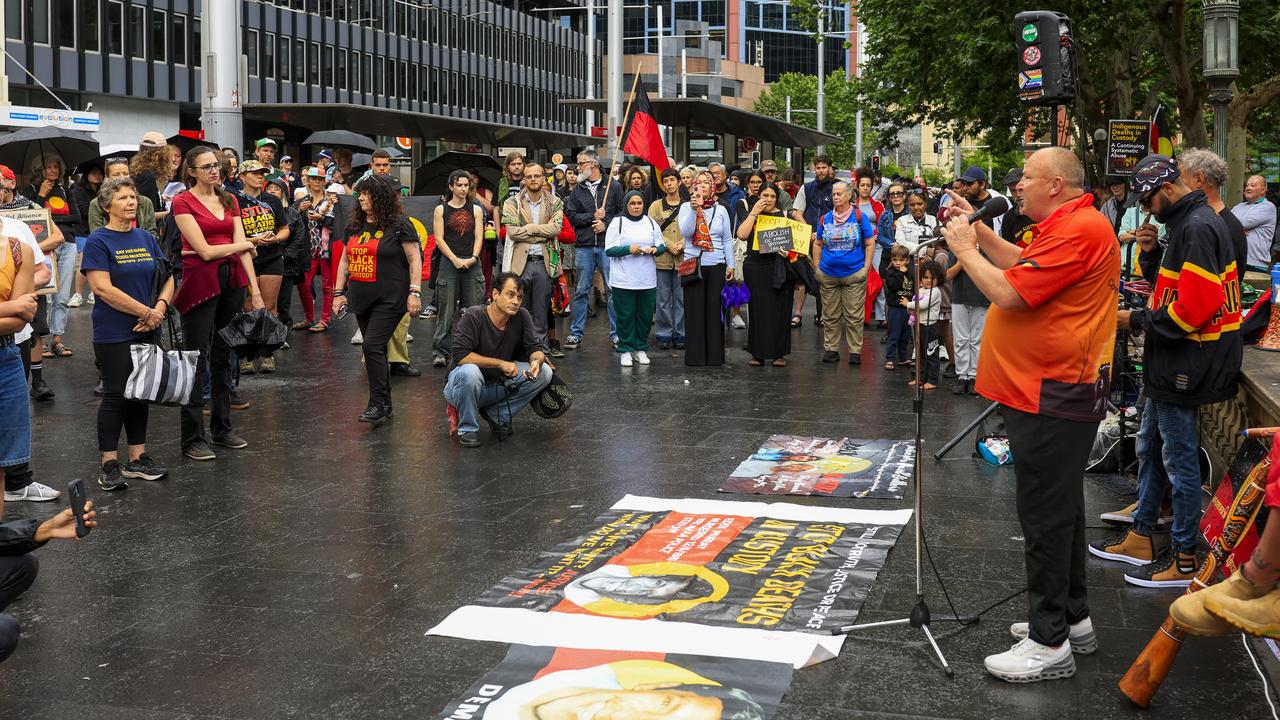
Although the rally was held in Sydney, Mr Silva said organisers stood in solidarity with each family who had lost a loved one in custody.
He said incarceration rates across Australia had remained consistent since 1991 or climbed higher, driven by reforms to bail laws, policing practices and cost of living and homelessness crises.
“These people aren’t statistics,” Mr Silva said.
“They’re family members, brothers, sisters, cousins, uncles and aunties.”
Alongside drawing attention to the shocking numbers of deaths in custody, Mr Silva wants the remaining recommendations of the 1991 inquiry to be implemented.
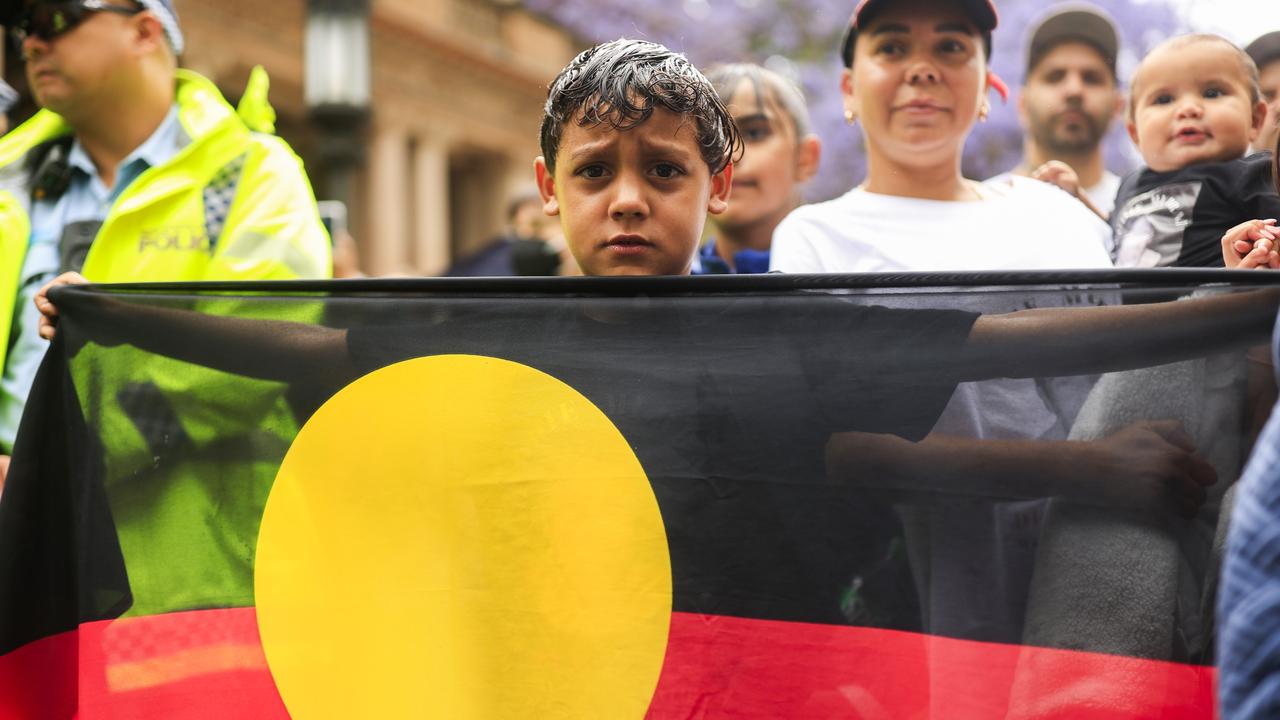
This includes the establishment of an Aboriginal-led, independent body to investigate deaths in custody; ongoing funding for Aboriginal legal services; 24-hour access to medical and mental health services in detention; and reparations for families who have lost loved ones.
“They’re not demands, they’re not requests, they’re a mother crying for change,” Mr Silva said.
“They’re myself, a nephew, a brother, a cousin, crying through inquiries to see what change we can get so the next blackfulla doesn’t end up a statistic, so the next family doesn’t have to sit through a court proceeding being shown video footage of their loved one being treated inhumanely.”
The northern NSW town of Lismore also held a rally on Saturday morning.
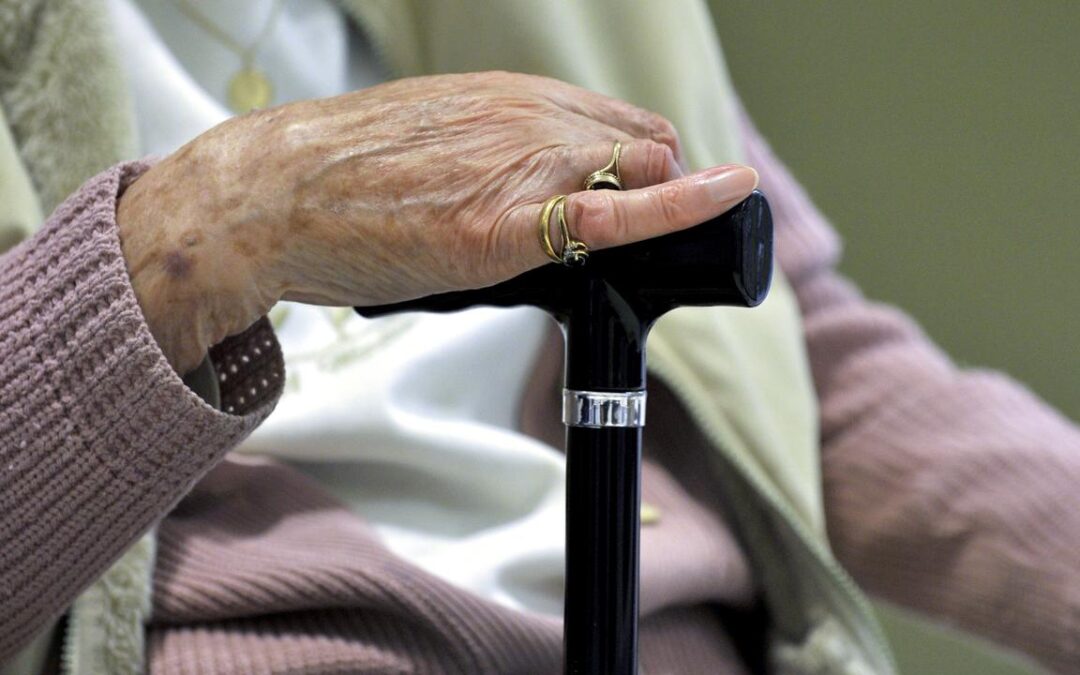
Historic aged care reforms spark concern
Once-in-a-generation aged care reforms have taken effect, promising to improve the quality of care for older Australians, although industry leaders have issued warnings about the challenges ahead.
New rules under the Aged Care Act will now require some care recipients to pay more for support services in a bid to put the industry on a more even keel and improve the quality of care on offer.
While clinical support such as nursing and physiotherapy will still be fully subsidised, services including showering will now have a fee associated with them.
The overhaul will be grandfathered, meaning older Australians already in care will not be worse off.
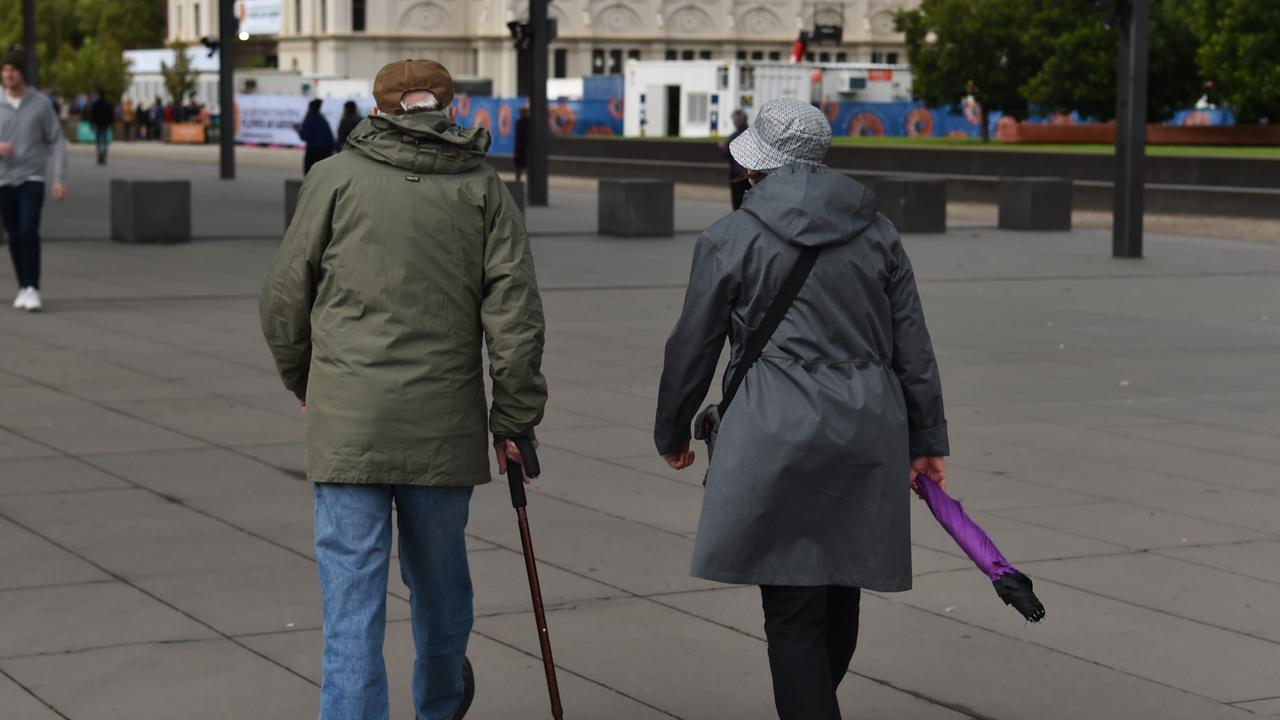
The changes also include updated rights for older Australians around independence, privacy, safety and quality.
Home care provider Dovida, which supports more than 14,000 seniors, welcomed the long-awaited reforms but expressed concern the sector might not be ready for the proposed changes.
Chief Operating Officer Greg Bartley is particularly worried about the federal government’s commitment to reduce wait times to just three months by July 2027, a promise made during the introduction of the bill to parliament in 2024.
“We have to be realistic about what it will take to get there. Right now, the system is already stretched thin, and we think the government has not made the systemic changes needed to meet their own target,” he said.
“Without urgent focus on infrastructure, workforce, and assessment capacity, the three-month target could quickly become another missed milestone for older Australians waiting to stay safely in their homes.”
Mr Bartley said the government’s ambition was supported, although it needed to be matched with action.
“The sector stands ready to help achieve the target, but we need the systems, people, and support to make it possible.”
The laws cover residential aged care and home care, and stem from the final report of the Royal Commission into Aged Care Quality and Safety, which was handed down in 2021.
More tiers of home care will be introduced to ensure people’s packages are better matched to the support they need.
Older Persons Advocacy Network chief executive Craig Gear told AAP he would be watching providers.
He warned companies were changing their pricing for home care in response to the reforms, which could leave some people trying to enter care worse off.
“People coming in on a current package may have less purchasing power,” he said.
Mr Gear said while some people were pleased their rights were enshrined in legislation, there was also a period of uncertainty ahead.
“Some people are feeling confused about what this means,” he said.
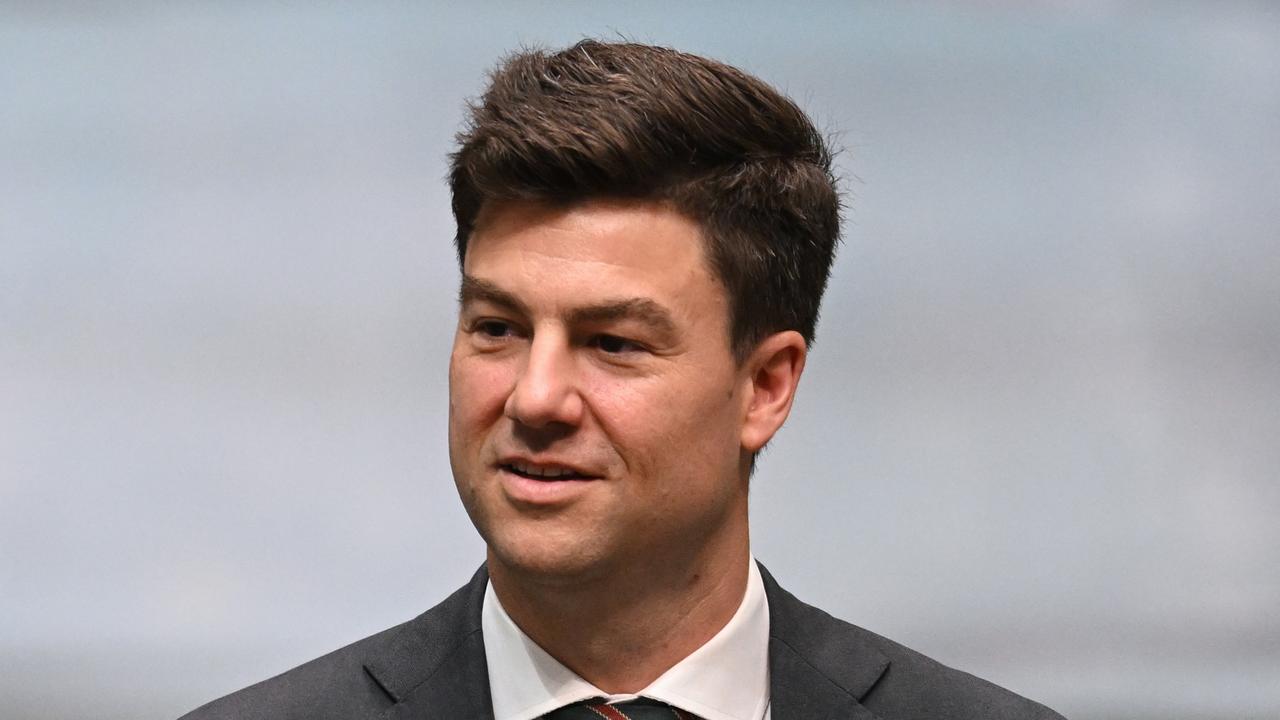
The Greens voted against the bill when it passed through parliament in 2024, voicing concern over the financialisation of care.
“Our parents and grandparents deserve to be looked after in their old age, not forced to choose between a shower each day and a meal,” Senator Penny Allman-Payne says.
“Aged care should not be for profit.”
Council on the Ageing chief executive Patricia Sparrow said some of the details would become clearer in coming days as the changes worked their way through the system.
“The changes are large, and people are trying to take them in,” she told AAP.
Aged Care Minister Sam Rae said the changes marked a shift for older Australians.
“With these reforms, we are no longer just patching a broken system,” he said in a statement.
“We are fulfilling a promise to deliver dignity, choice and respect to every person who has spent their life contributing to their community and our country.”
The aged care sector will come under increasing pressure in coming years as large numbers of baby boomers begin requiring more support, and questions remain about the capacity of the industry’s workforce to deliver the required care.
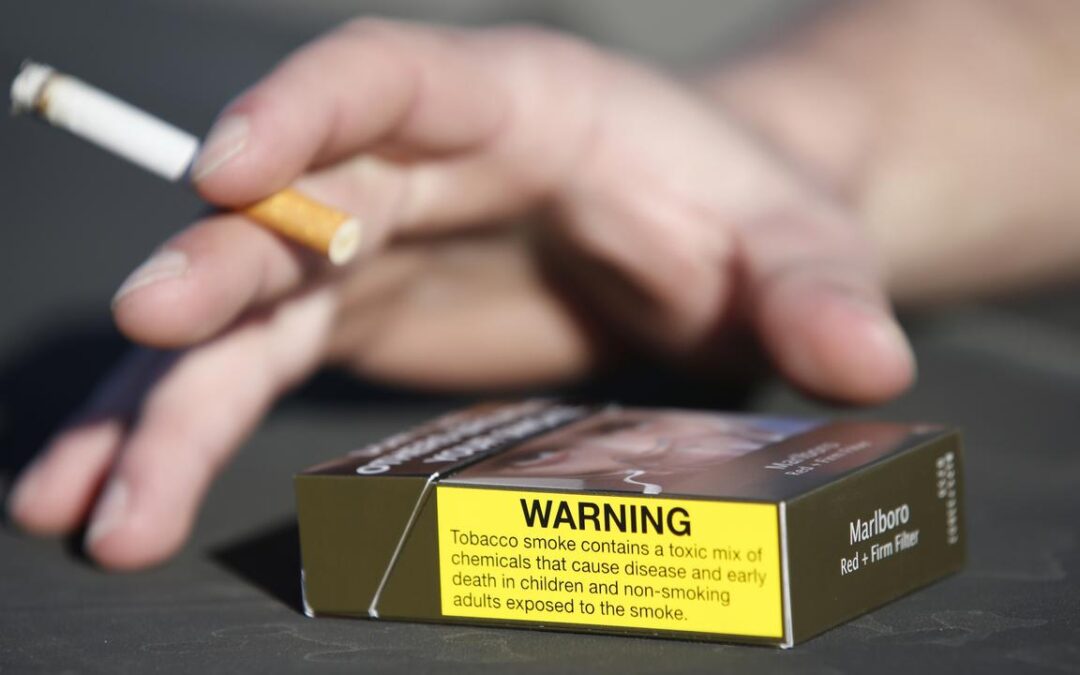
Retailers ponder quitting ciggies as illegal sales soar
Supermarkets are considering a once-unthinkable move to ditch tobacco from their shelves, as the illegal trade makes stocking cigarettes almost unviable.
The immense scale of the loss of legal sales and retailers revenue is clear from financial reports issued this season.
Quarterly data posted by Woolworths on Wednesday showed sales down 51 per cent compared with the same three months in 2024, while Coles sold 30 per cent less tobacco across the past financial year.
Sales at wholesalers Metcash are down almost half compared with four years ago, a drop of $1.3 billion that now has tobacco representing just 17 per cent of sales.
Viva Energy, which operates 1000 petrol stations nationwide, revealed this week sales had plunged 12.5 per cent in the last quarter, blaming the latest set of packaging law changes from the federal government.
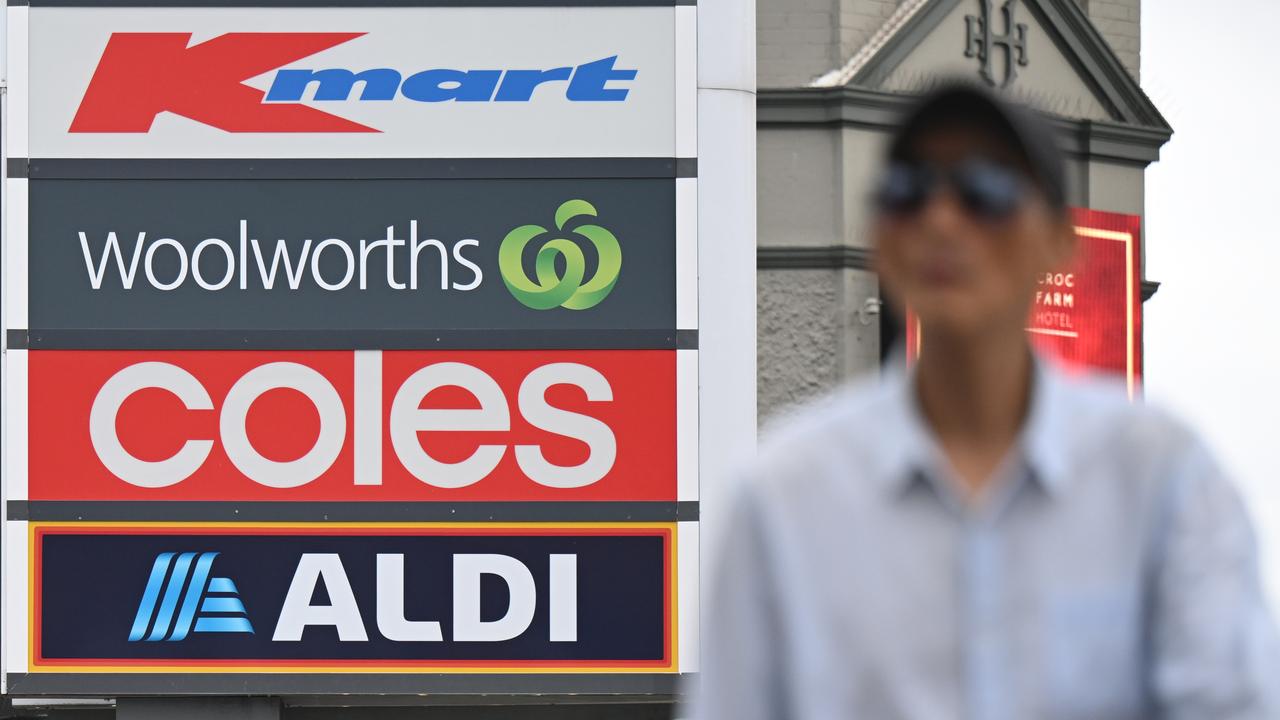
Those changes include new anti-smoking messages both inside and outside packets, coupled with excise hikes which now amount to $1.50 per cigarette stick.
Lower sales might be celebrated as a public health success if it weren’t for the soaring underground cut-price tobacco industry.
The under-the-counter trade accounts for 39 per cent of sales, according to a consultant’s report prepared for the tobacco industry, showing Australians have no qualms in buying cheaper unregulated product.
Some studies – including in Western Australia – are proving what many anti-smoking advocates are feeling to be the case anecdotally, that cheap cigarettes are producing the first rise in smoking rates in a generation.
Police link the illegal tobacco trade to multinational crime syndicates.
Fred Harrison, the chief executive of the IGA-aligned Ritchies supermarket group – including 82 grocery shops and 72 liquor stores across three states – is witnessing the collapse.
“We’ve seen over the last four years our tobacco sales decline from $300 million, we’re on track this financial year to hit around $60 million,” he said.
“If people have stopped smoking and moved away from tobacco, we’ll wear that on the chin.
“However, we know that smoking is dramatically up … and it’s all going to the illicit (trade) and it makes me extremely upset.”
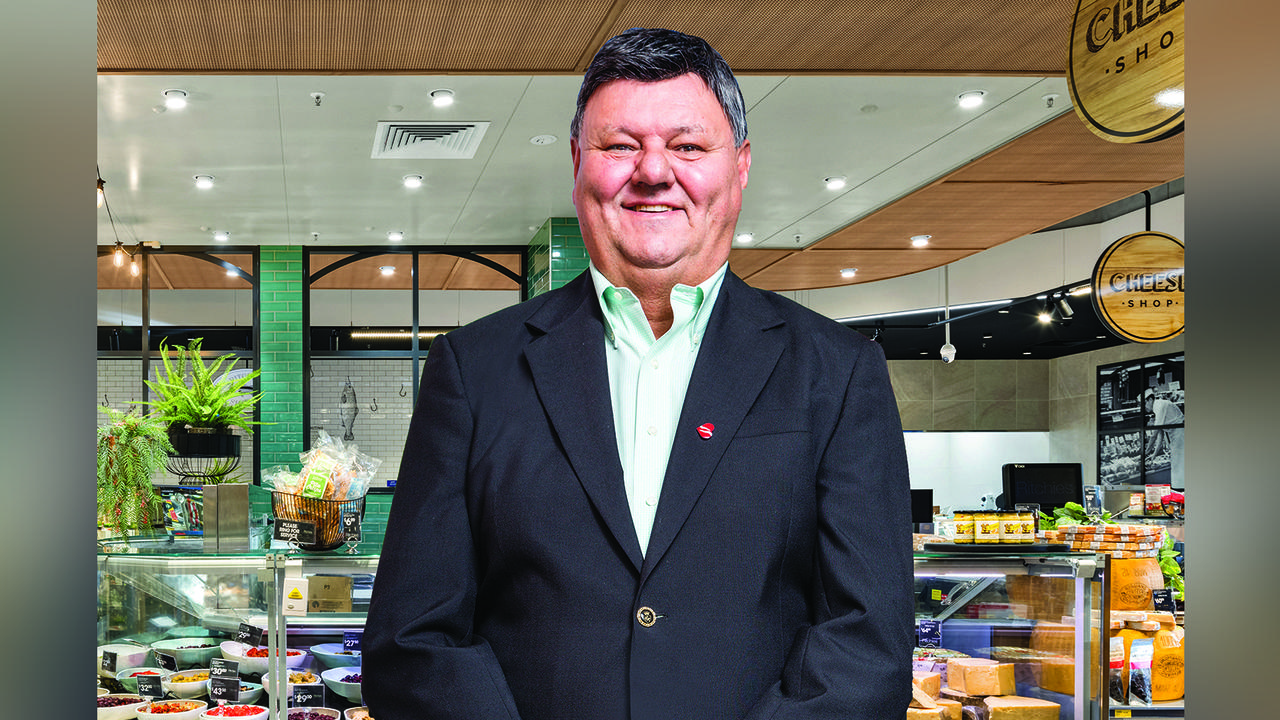
Mr Harrison – a 50-year veteran of the industry – said he had begun taking cigarettes off his liquor store shelves and would next consider doing so from supermarkets.
“We have exited from 25 of our 72 liquor stores … the sales just don’t warrant it when you’ve got $25,000 (in stock) sitting there and you’ve got $300 in sales a week,” he said.
“We are going to review a number of supermarkets in the new year. There’s probably six to 10 where we’re saying it shouldn’t be part of our offer.
“That’s frustrating when it’s a legal product and you’re sick to death of letting the bad guys win.”
Mr Harrison is savage on the Victorian government for not joining other states to legislate specific anti-illicit tobacco laws which target landlords of illegal tobacco sellers, threatening businesses with closure and fines.
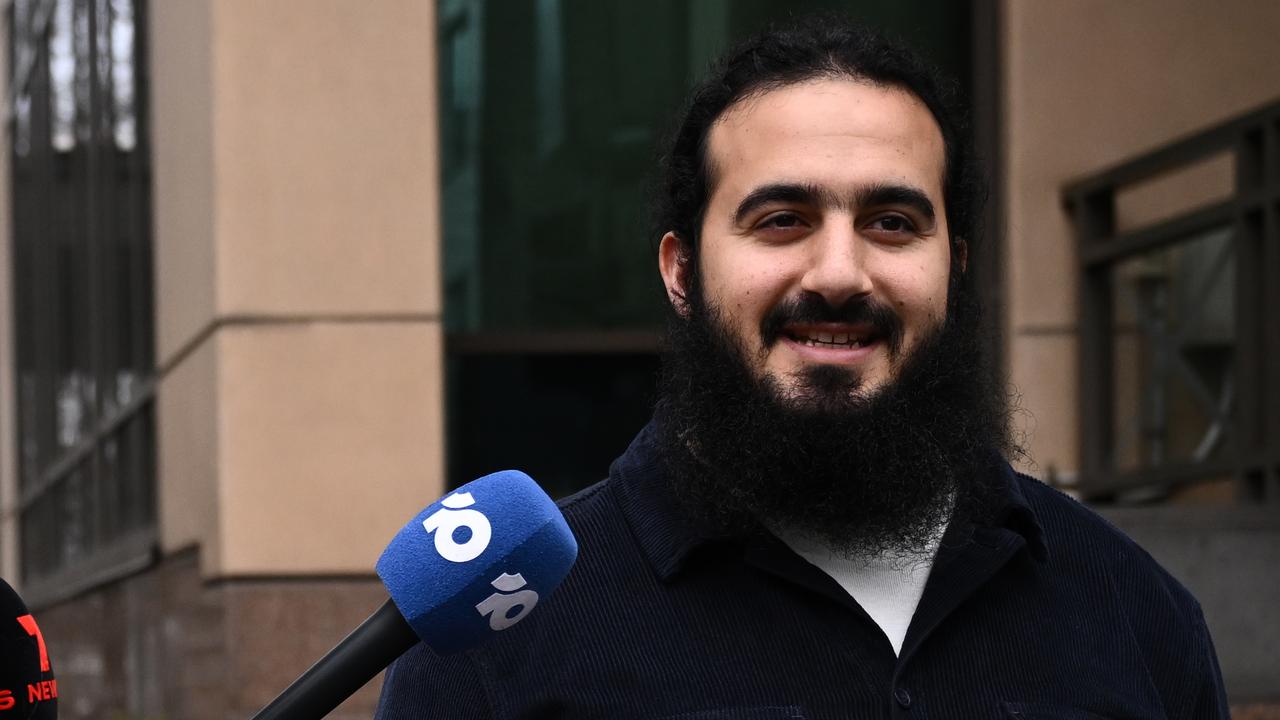
At the Metcash AGM this year, chief executive Doug Jones also lashed “the effectiveness of the various law enforcement initiatives” as “disappointing to say the least”.
IGA stores are also joining the lobbying effort for bigger fines – as NSW and Queensland have legislated – to landlords housing illegal tobacconists.
While Ritchies has begun to phase out tobacco, it’s unclear whether the supermarket duopoly will follow.
In response to questions from AAP, Woolworths said it was yet to do so, while Coles did not respond.
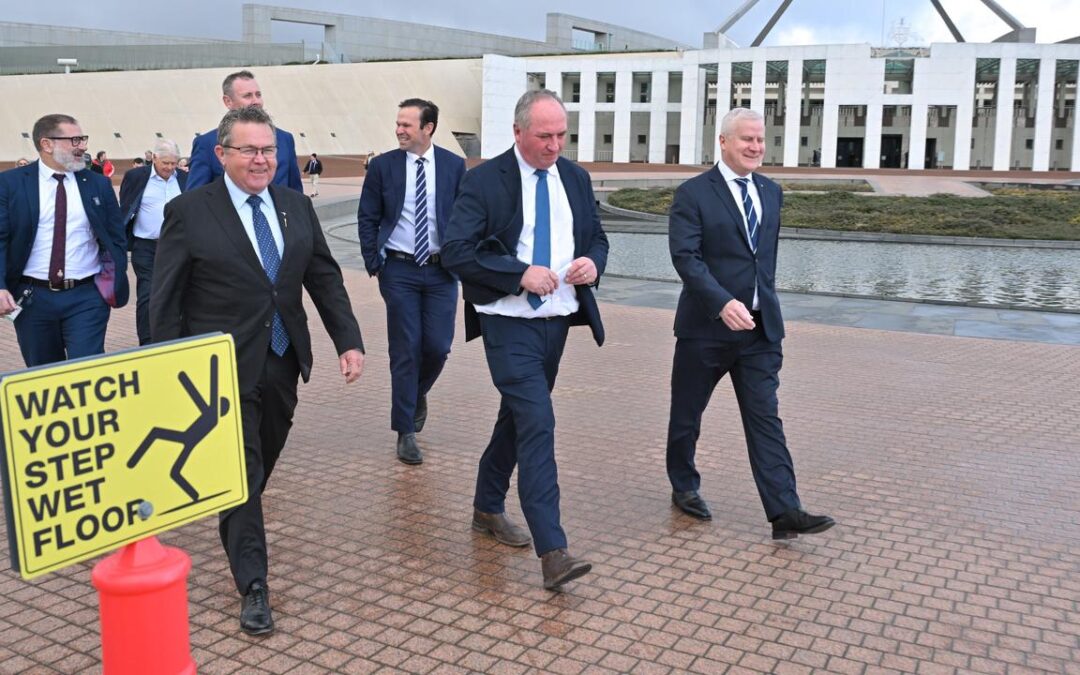
Nationals urged to dump net zero, back nuclear power
Party faithful are urging the Nationals to dump a commitment to net-zero emissions by 2050 and withdraw from a global climate treaty.
A federal council meeting will be held in Canberra on Saturday, with the rural party to outline its policy vision.
Motions to be debated include bids to scrap the key climate target and withdraw from the Paris climate agreement.
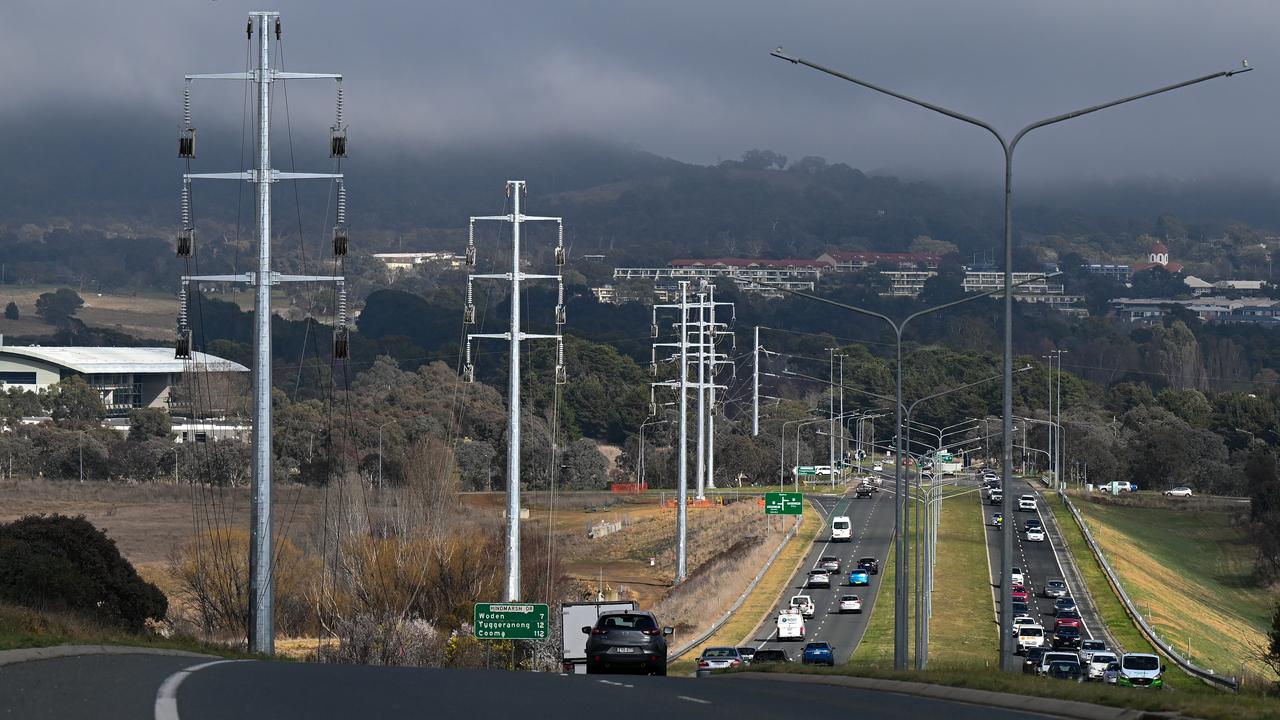
They call on the National Party to “abandon its support for a net-zero mandate” while backing a policy framework that allows emissions reductions.
This would be done by protecting key industries such as mining, agriculture and manufacturing through a “balanced” energy mix of coal, gas and renewable energy sources.
Giving the motion the green light would see the Nationals retain a commitment to nuclear energy and support lifting the nationwide ban on nuclear power introduced in 1998.
Adopting the policy would keep the Nationals “opposed to the current punitive industry and job-destroying taxes of the Albanese Labor government”.
Under the Paris Agreement, signed in 2015, members must increase their emissions targets every five years and cannot water them down.
By stepping away from the agreement, national control would be restored over emissions targets and energy policy by ensuring access to affordable and reliable energy for Australians, the motion reads.
The net-zero target has remained a key sticking point within the coalition as the Liberal Party undertakes an energy policy review following the disastrous May election defeat.
But its own commitment is in doubt following a meeting of Liberal backbenchers at Parliament House on Friday.
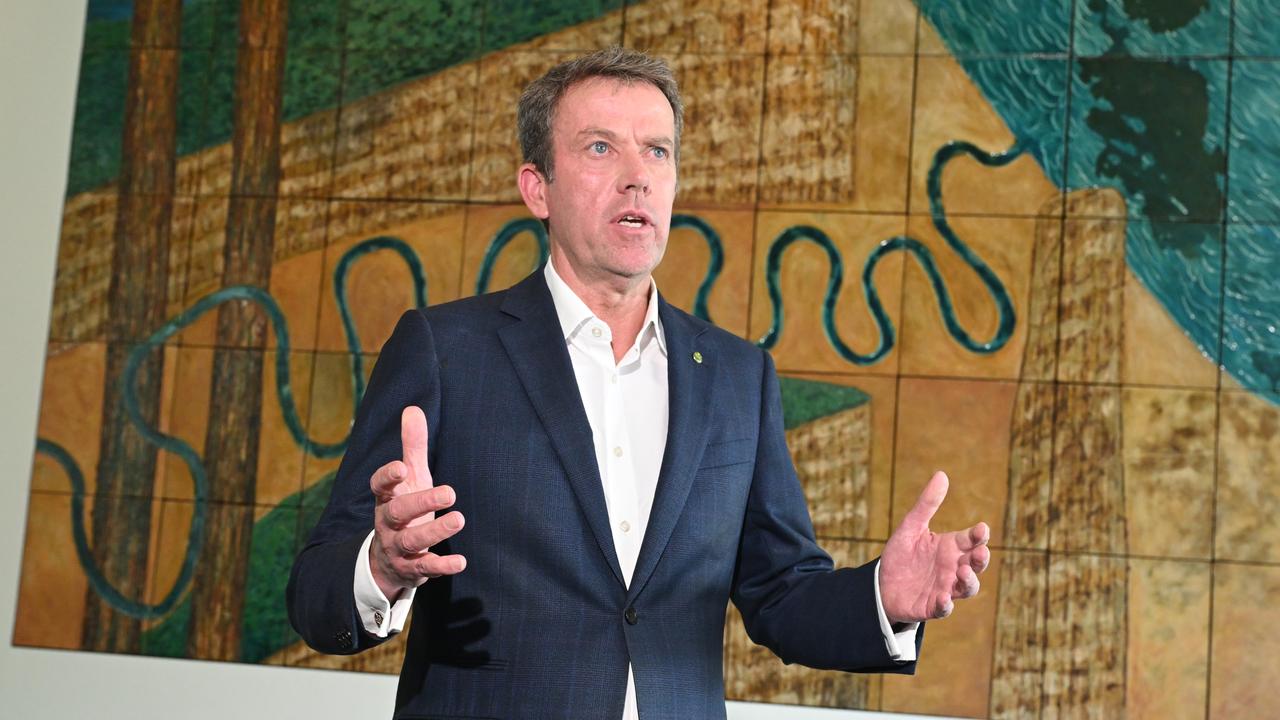
Opposition energy spokesman Dan Tehan said the Liberals were likely to finalise their position six to nine months after the federal election, meaning a decision would likely come between November and January.
Liberal leader Sussan Ley said the coalition’s energy policy would not simply prioritise an emissions target.
“As I have said from the beginning … we’re not going to accept the government’s net zero at any cost,” she said on Friday.
Speaking from South Korea, Prime Minister Anthony Albanese said the government was getting on with the transition to net zero unperturbed by coalition ructions.
“I’ll allow people to watch that circus and to make their own decisions,” he told reporters.